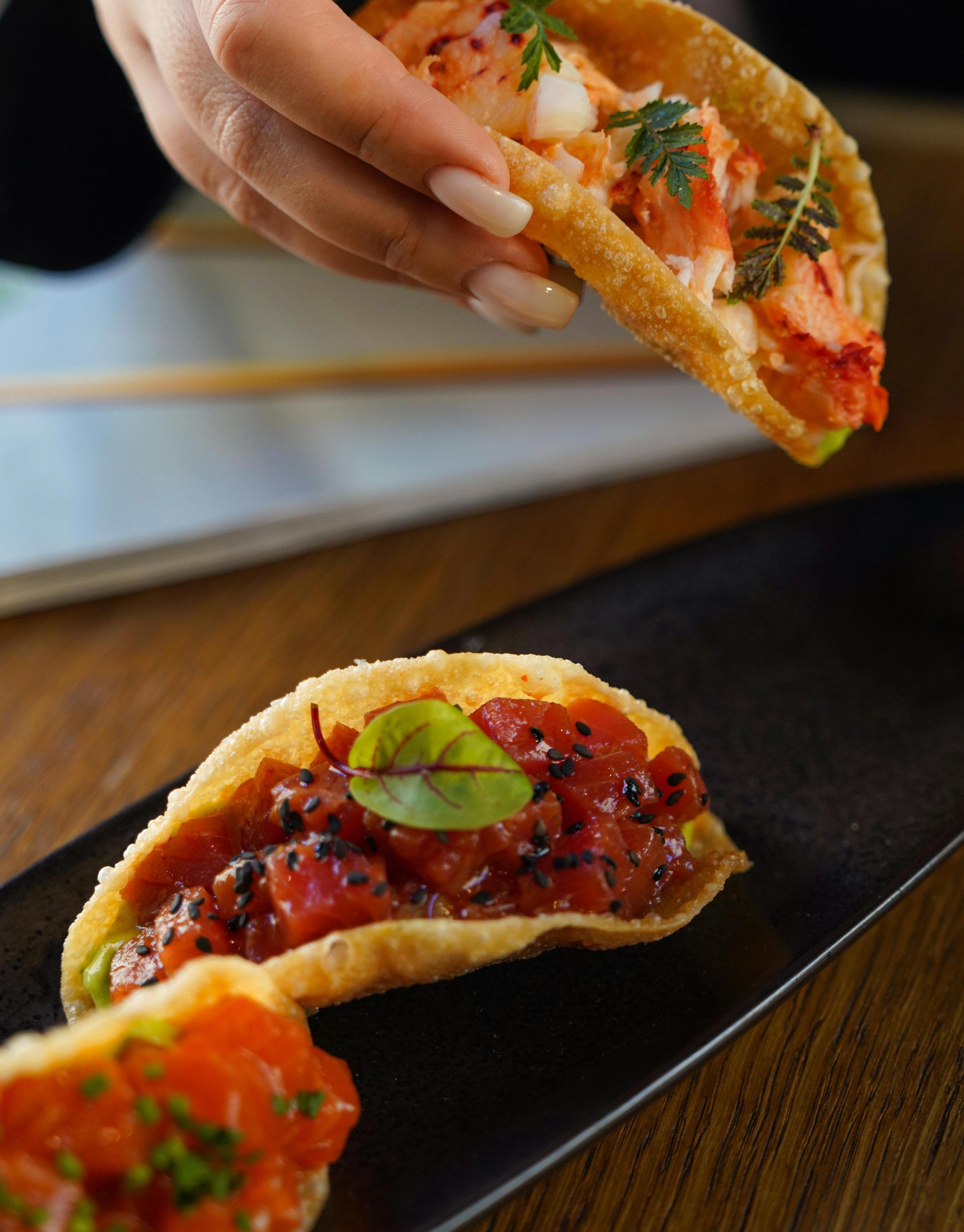

ThePower of Participation:
Why Advocacy Matters for Oregon’s Hospitality Industry
Keturah Alger, owner of Laughing Clam, Grants Pass
PHOTO COURTESY OF KETURAH ALGER
Benefits That Work FOR EVERYONE
Health, retirement, and wellness benefits made simple for your people and sustainable for your business.
+ SLICE helps employers offer meaningful benefits without the complexity.
+ Health coverage with tax-free contributions
+ Personalized retirement planning support
+ Tools and resources to support wellness and peace of mind
Your team gains more choice. You keep more control. And your business stays ahead in a competitive market.
Ready for a better way to offer benefits?
Contact us at info@sliceemployeebenefits.com or visit our website sliceemployeebenefits.com.



In the hospitality industry, it’s all too easy to face “death by a thousand cuts” - expenses piling up from every direction. But you can take control over one of these line items. Your insurance.
That’s why ORLA offers a free annual insurance review to every member.
And it’s why we launched the Hospitality Insurance Program (HIP) in collaboration with the Risk Strategies Fournier Group. You gain the benefit of ORLA’s purchasing power, plus insurance tailored to your business.
Find out if you have coverage gaps. Schedule your free review today.
Call or email: Rob Hoover 503-820-3415 gethip@risk-strategies.com


Restaurant & Lodging is published four times a year by Oregon Restaurant & Lodging Association (ORLA), 8565 SW Salish Lane, Suite 120, Wilsonville, Oregon, 97070 503.682.4422
To learn more about ORLA visit us online at OregonRLA.org
PUBLISHER
JASON BRANDT / PRESIDENT & CEO JBrandt@OregonRLA.org
LORI LITTLE / EDITOR LLittle@OregonRLA.org
HEIDI JANKE / DESIGN HJanke@OregonRLA.org
MEMBERSHIP
To become a member of the Oregon Restaurant & Lodging Association, please contact us at info@OregonRLA.org or 503.682.4422.
ADVERTISING
Please support the advertisers herein; they have made this publication possible. For information on advertising opportunities, please contact ORLA:
MARLA McCOLLY
Director of Business Development at 503.428.8694 or MMcColly@OregonRLA.org
SUBSCRIPTIONS
To update your digital and print subscriptions to this publication and all ORLA communications visit OregonRLA.org.
2024-25 ORLA BOARD OF DIRECTORS
Patrick Nofield, Chair, Escape Lodging
Komal (Tina) Patel, Vice Chair, ALKO Hotels
Katie Poppe, Treasurer, Blue Star Donuts
Liz Dahlager, Secretary, Mereté Hotel Management
Shannon McMenamin, Immediate Past Chair, McMenamins
Marin Arreola III, Advanced Economic Solutions (AES) Inc.
Jolee Bancroft, Mo's Restaurants
Terry Bichsel, Rivertide Suites Hotel
Joe Buck, Babica Hen / Lola's / Gubanc's
Gillian Duff, El Gaucho Portland
Gordon Feighner, Jam on Hawthorne
Justin Freeman, Bagel Sphere
Cheri Helt, Zydeco Kitchen & Cocktails
Kurt Huffman, ChefStable
Joe Lowry, Bandon Dunes Resort
Taran Patel, A-1 Hospitality Group
Alkesh Patel, Evergreen Hospitality Development Group
George Schweitzer, West Coast Hospitality LLC
Natalie Sheild, Togather Restaurant Consulting
Jim Smith, Mountain Mike's Pizza, Cascades Coffee House
Rick Takach, Vesta Hospitality
Jake Vanderveen, McDonald Wholesale Co.
Scott Youngblood, CASCADA
Dhruti Amin, Ex Officio Board Member, ALKO Hotels

SUMMER 2025
ORLA President & CEO, Jason Brandt PHOTO CREDIT: JASON E. KAPLAN
Oregon Dairy.
Taste the Local Difference.

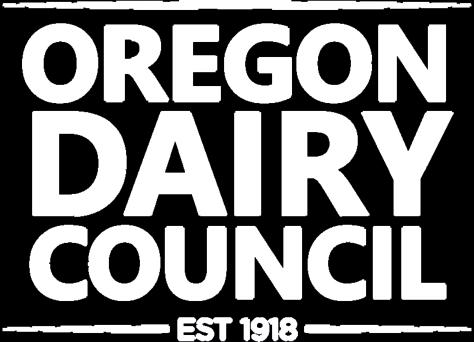

FROM THE CEO
Why Membership in ORLA Matters Now More Than Ever
In Oregon’s hospitality industry, where every guest interaction and every dollar earned carries the weight of economic recovery, workforce challenges, and everchanging regulations, one truth stands above all: We are stronger together.
The Oregon Restaurant & Lodging Association (ORLA) exists to protect, promote, and advocate for the operators who power Oregon’s local economies—from coastal inns and rural diners to urban hotels and fine dining establishments. As the President & CEO of ORLA, I’ve seen firsthand how much we can accomplish when we unite around common purpose. But it’s also clear: the work we do is only as strong as the depth and breadth of our membership.
Membership in ORLA isn’t just an affiliation—it’s a strategic investment in the future of your business.
Defending Our Industry Against Unfair Taxation
Over the past year, ORLA has delivered decisive wins for Oregon’s hospitality industry in the face of some of the most aggressive legislative and regulatory threats we’ve ever seen.
In Tillamook County, local commissioners proposed a staggering 40 percent increase in local lodging taxes—a move that would have made Tillamook County the second highest tax rate for overnight stays across the state (just .5 percent behind Portland). ORLA led the opposition effort, working with local stakeholders, educating policymakers, and ensuring our industry’s voice was heard. The result? Voters said no.
In Albany, we are finalizing a settlement agreement with the city that upholds state law on how local lodging taxes must be spent. This outcome not only protects the integrity of how lodging tax dollars are used—it sets a precedent for future conflicts
statewide. The message was clear: state law matters, and ORLA will defend it.
Perhaps most significantly, we successfully stopped House Bill 3962 , a sweeping proposal that would have allowed city and county officials— including law enforcement and local governments—to redirect lodging tax revenues away from tourism promotion. Backed by mayors, sheriffs, police chiefs, and county commissioners, the bill would have unraveled decades of state-level guardrails. ORLA stood with our partners in opposing the measure, ultimately succeeding in protecting the existing balance established in law.
And at the state level, we held the line against House Bill 2977 , which would have increased Oregon’s statewide lodging tax. Such a move would have made Oregon less competitive for major conventions and events, threatening the very market segments that bring new dollars into our communities. We knew what was at stake and ensured the legislation didn’t move forward.
Collective Strength = Real Results
These victories didn’t happen by chance— they were made possible because our members chose to invest in the collective voice of our industry.
When operators join ORLA, they empower our team to engage directly with elected officials, media, and regulatory agencies. We’re in the room when new tax proposals are drafted. We’re at the table when industry regulations are considered. And we’re on the ground in communities across Oregon, ensuring local leaders understand the economic engine our industry represents.
What’s at Stake if We Don’t Act
Too often, the burdens placed on our industry come in the form of fees, taxes,
and mandates that seem small in isolation but compound over time. What begins as a proposal in a hearing room can quickly become a financial reality that threatens your bottom line. This is why ORLA exists—not just to react, but to proactively shape the environment in which hospitality businesses can thrive. Without a robust, engaged membership, our ability to fight back—and to win—diminishes. And in today’s climate, with labor shortages, inflationary pressures, and regulatory overreach continuing to mount, we cannot afford silence or inaction.
A Modest Investment. A Massive Impact.
We understand the pressures you face as operators. Every dollar counts. But when you consider what’s at stake—your profitability, your workforce, your longterm sustainability—joining ORLA is one of the smartest investments you can make. Membership starts with a modest financial commitment, but the returns are anything but modest. You gain access to expert guidance, regulatory updates, marketing support, and workforce development initiatives. More importantly, you become part of a unified movement dedicated to defending and advancing our industry.
An Invitation to Join Us
To our current members: thank you. Your support has fueled these recent victories and allowed us to remain vigilant in protecting our shared interests. To those considering membership: we invite you to step forward. There is no better time to link arms with industry peers across the state and ensure your voice is heard. With more members, we build more influence. With more influence, we secure more wins. And with more wins, we create a future where hospitality isn’t just surviving—it’s thriving. Together, let’s continue to shape that future. Join ORLA. Be seen. Be heard. Be protected. JASON BRANDT, PRESIDENT & CEO, ORLA
ADVOCACY IN ACTION
2025 Oregon Legislative Session Recap

The 2025 legislative session was incredibly challenging—not only due to the record 3,466 bills filed, but also because of the number of new legislators, new House leadership, new committee chairs in both chambers, and the passage or failure of key policy concepts.
ORLA actively advocated for Oregon’s hospitality industry on multiple fronts throughout the legislative session, engaging on a wide range of bills to protect and advance the interests of our members. Whether supporting, opposing, or closely monitoring legislation, ORLA was at the table ensuring the voice of the hospitality sector was heard.
In general, the biggest news for Oregonians was the battle over a complicated and complex transportation package by Democrats who held supermajorities in both the House and Senate. The package was aired until later in the session, changes were made, legislators were removed from the Joint Committee on Transportation for voicing their vote before it happened and, in the end, it did not get enough votes to pass. Approximately $11.7 billion in new taxes, fees and other charges would have been assessed on Oregonians, many of whom are still clearly struggling to pay basic bills and keep food on the table. A special session to readdress transportation is likely to happen in late summer or early fall.
Also of note coming out of this session: Oregon will be the first state in the country to allow public employees to collect unemployment while on strike (SB 916); we still lag behind other outdoor recreation-dependent states on liability reform (SB 1196); and legislation was heard but did not pass establishing industryspecific labor standards boards which would allow the Oregon Legislature to abdicate its authority and give lawmaking power to unelected boards of political appointees (HB 3838 - Home and Community-Based Workforce Standards Board).
Below are key bills ORLA tracked this session, along with our positions and the current status of each.
TOURISM
HB 2977A
ORLA Position: Opposed Status: Failed
Background: This bill would have increased the statewide transient lodging tax (TLT) by 1.25 percent with 1 percent going to Oregon Department of Fish and Wildlife (ODFW) for species conservation and .25 percent being split between four state agencies and eight different sub-accounts. ORLA vigorously opposed the bill, emphasizing that the original purpose of Oregon’s self-imposed statewide lodging tax was to fund tourism and drive economic development across the state.
Chief sponsors included Rep. Ken Helm, Sen. Chris Gorsek, Rep. Mark Owens, Sen. Lew Fredrick and Sen. Todd Nash. Needing 36 votes to pass, this bill narrowly did so in the Oregon House on a 36-15 vote with nine members excused. On the Senate side, the bill passed on a 3-2 party-line vote out of committee but since the bill was heard with only a few days left in the session, the bill never advanced to the Senate floor, where its chances of securing enough votes for passage remained uncertain.
ORLA, along with the Asian American Hotel Owner’s Association (AAHOA), American Hotel & Lodging Association (AHLA), Oregon Destination Association (ODA), numerous Destination Management Organizations (DMOs), Chambers, Oregon Business and Industry (OBI), Metro and others concerned about diverting tourism dollars away from their intended purpose, showed up in force at every step along the way to provide testimony in opposition and convince legislators to not vote for this bill.
ORLA fully expects this bill to reappear in the 2026 short session and will once again rally the hospitality industry to prevent its passage.
HB 3962A
ORLA Position: Opposed
Status: Failed
Background: This bill would have changed the split of transient lodging tax (TLT) uses from at least 70 percent for tourism and no more than 30 percent for general services to at least 40 percent and no more than 60 percent, respectively. It would have let local TLT money be used for city or county services provided by a special district in lieu of the city or county. Finally, the bill would have let local governments with legacy tax laws use the new provisions of the bill.
ORLA Director of Government Affairs, Greg Astley, testifying before the House Revenue Committee on behalf of the industry.
ORLA opposed this bill due to the breach of the agreement going back to the 2003 session establishing the statewide TLT and the 70/30 split for local TLT–with 70 percent going to tourism promotion, marketing and facilities and 30 percent going to cities and counties as unrestricted dollars.
Starting out as a “study” bill, the original amendment mirrored language in HB 3556 (see below) but the final -14 version was the one outlined above.
The reality of the local TLT is that many cities and counties have much more than 30 percent to use unrestricted for whatever purpose they desire. In fact, some cities enjoy as much as 60-70 percent unrestricted with some running as high as 80 percent or more. This bill would have gutted the organizations who receive tourism promotion and marketing dollars and dramatically reduced their ability to create local jobs, stimulate economic development and bring visitors to communities during slow seasons to help prevent closures and layoffs.
Chief sponsors of the bill included Rep. Cyrus Javadi, Sen. Suzanne Weber and Rep. Jules Walters. Needing 31 votes to pass, this bill did so with Leadership turning three votes on the floor in the House on a 31-23 vote and six members excused. On the Senate side, the bill was referred to the Senate Finance and Revenue Committee where it received a Public Hearing (and Work Session). However, the Chair, Sen. Mark Meek, did not schedule a work Session, thereby killing the bill.
ORLA fully expects this bill to reappear in in future legislative sessions and will once again rally the hospitality industry to prevent its passage.
HB 3325
ORLA Position: Opposed Status: Failed
Background: This bill was one of several filed this session attempting to divert TLT dollars away from their intended purposes. HB 3325 would have allowed counties with high tourist counts (an average of 100 visitors to 1 resident over the three previous calendar years) to use TLT dollars for “essential services” such as public safety and highways instead of tourism.
Sponsored by Rep. Cyrus Javadi, the bill was referred to the House Committee on Economic Development, Small Business, and Trade but there was never a Public Hearing or Work Session, and the bill died in committee.
HB 3556
ORLA Position: Opposed Status: Failed
Background: Another TLT bill sponsored by Rep. Cyrus Javadi, Sen. Suzanne Weber and Rep. Jules Walters, this would have changed the definition of tourism marketing, promotion or facilities to include “tourism-impacted services,” encompassing items such as public safety, wastewater and transportation.
ORLA mobilized the industry to testify against this bill in large numbers and convince several members of the committee to vote no if it came up for a vote.
The bill was referred to the House Committee on Emergency Management, General Government, and Veterans and although a Public Hearing was held, the bill died in Committee without receiving a Work Session or vote.
SB 358
ORLA Position: Opposed Status: Failed
Background: This bill, or a version of it, has been seen before in prior legislative sessions. It directs 1 percent of state transient lodging tax collections at state recreation areas along the ocean shore to be transferred to the Ocean Beach Fund and would be used to manage state recreation areas along the ocean shore.
Chief sponsor of the bill was Rep. David Brock-Smith, and it was referred to the Senate Committee on Natural Resources and Wildlife. The bill was never scheduled for a Public Hearing or Work Session and died in committee.
SB 434
ORLA Position: Opposed Status: Failed
Background: A mirror bill to SB 358, the Chief Sponsor was Sen. Dick Anderson. This bill directs 1 percent of state transient lodging tax collections at state recreation areas along the ocean shore to be transferred to the Ocean Beach Fund and would be used to manage state recreation areas along the ocean shore.
This version was also referred to the Senate Committee on Natural Resources and Wildlife. The bill was never scheduled for a Public Hearing or Work Session and died in committee.
SB 453
ORLA Position: Opposed Status: Failed
Background: Another study bill for the use of Transient Lodging Taxes, this appeared to be a placeholder for a potential “gut and stuff,” a legislative move where the original language is gutted and then stuffed with new language–in this case with language similar to HB 3962. The Chief Sponsor was Sen. Suzanne Weber.
The bill was referred to the Senate Committee on Finance and Revenue but was never scheduled for a Public Hearing or Work Session and died in committee.
SB 457
ORLA Position: Opposed Status: Failed
Background: Mirroring SB 453, this was another study bill for the use of Transient Lodging Taxes. This also appeared to be a placeholder for a potential “gut and stuff” with language similar to HB 3556 replacing the current language in the bill. The Chief Sponsor was Sen. Suzanne Weber.
The bill was referred to the Senate Committee on Finance and Revenue but was never scheduled for a Public Hearing or Work Session and died in committee.
SB 470A
ORLA Position: Monitored Status: Passed
Background: This bill allows a person to sue a transient lodging provider, including short-term rental properties, if someone makes, stores or shows a video image or audio recording of the person while the person is in private space such as a bathroom, bedroom or washroom or any other similar space where the occupant should expect a reasonable expectation of privacy. This bill would not include outdoor security cameras.
The bill’s Chief Sponsor was Sen. Floyd Prozanski, and the bill passed the Senate on a 29-0 vote with one excused absence. It passed the House 49-0 with ten members excused and one vacancy.
A plaintiff who prevails in a cause of action for invasion of personal privacy under this section is entitled to receive compensatory damages and reasonable attorney fees.
The bill was signed by the Governor and will take effect beginning on September 26, 2025.
ALCOHOL / OLCC
HB 3197
ORLA Position: Opposed
Status: Failed
Background: One of many “study” bills, HB 3197 directed the Legislative Revenue Office (LRO) to study the taxing of the sale of beer and wine. Study bills are often used as placeholders so that later in the session, the bill can be altered in a legislative move known as a “gut and stuff” where the original language is gutted and then stuffed with new language. As long as the new language complies with the “relating to” subject line, the bill can then move forward.
In this case, an amendment was proposed imposing a point of sale tax on malt beverages, wine and cider of 2 percent starting in 2026 and rising every two years reaching 8 percent by 2032. The tax proceeds would be split with 85 percent going to youth drug and alcohol prevention efforts and 15 percent going to cities and counties. Retailers would be allowed to keep 2 percent of the tax proceeds for administrative purposes.
The bill had a Public Hearing and a Work Session but was still in the House Committee on Revenue upon adjournment and died.
LABOR
HB 2787
ORLA Position: Opposed Status: Failed
Background: This bill would have required employers to “Compensate an employee for time spent on call or on standby when the employee is required to be at the premises of the employer or available to report to work within 90 minutes after being contacted by the employer such that the employee is unable to use the scheduled hours effectively for the employee’s personal purposes, regardless of whether the employee is asked by the employer to perform work.”
With several provisions similar to the existing scheduling law, this bill was referred to the House Committee on Labor and Workplace Standards but never was scheduled for a Public Hearing or Work Session and died in committee.
SB 922
ORLA Position: Opposed Status: Failed
Background: This bill would have required employers to distribute any tips received from a credit card transaction to employees within 24 hours after the credit card transaction is processed.
The Chief Sponsor was Sen. David Brock-Smith. The bill was referred to the Senate Committee on Labor and Business but was never scheduled for a Public Hearing or Work Session and died in committee.
HEALTH
HB 3018A
ORLA Position: Opposed Status: Failed
Background: This bill would have established statewide food-waste separation and composting rules for large food businesses, paired with uniform date labeling. It’s modeled after the food waste program Metro currently has in place and would have been phased in over time based on the amount of food waste produced by a restaurant or food service business.
ORLA engaged with the bill’s proponents, raising concerns about implementation challenges and the limited availability of facilities capable of accepting and composting food waste. Changes were made to the bill to extend the phase-in, but ultimately, the bill died in the Joint Ways and Means Committee after passing the House Committee on Climate, Energy and Environment on a 7-4 vote. It’s likely this bill will appear again in a future legislative session.
HB 2048
ORLA Position: Supported
Status: Failed
Background: ORLA proposed this legislation to ensure all food providers, including mobile units, meet consistent health and safety standards, protecting public trust and maintaining a level playing field for brick-and-mortar restaurants.
Rep. Boomer Wright sponsored the bill which would have prevented the Oregon Health Authority and local health departments from licensing a food cart that does not have a separate licensed commissary or kitchen for prepared food.
The bill was referred to the House Committee on Commerce and Consumer Protection early in the session but never was scheduled for a Public Hearing or Work Session and the bill died in committee.
TAXES
SB 560
ORLA Position: Monitored Status: Failed
Background: Similar to legislation discussed during the 2024 Presidential Election, this bill would subtract from federal taxable income any amount of tips properly reported as wages on the taxpayer’s federal income tax return.
Chief Sponsors included Sen. Dick Anderson and Sen. Cedric Hayden. ORLA was monitoring this bill to prevent any changes negatively impacting employers or dramatically altering the content of the bill.
The bill was referred to the Senate Committee on Finance and Revenue but was never scheduled for a Public Hearing or Work Session and died in committee.
ELECTIONS
SJR 0021
ORLA Position: Supported Status: Failed
Background: This bill would have amended the State Constitution to take redistricting for Congress and Legislative seats out of the hands of state legislators and form a separate, independent Citizens’ Redistricting Commission to draw district maps. It would have referred the amendment to a vote of the people at the next General Election.
Chief Sponsor of the bill was Sen. Daniel Bonham. The bill was referred to the Senate Committee on Rules but was never scheduled for a Public Hearing or Work Session and died in committee.
WE HAVE YOUR BACK
ORLA’s advocacy team worked diligently this session to block harmful bills, advance legislation that supports the vitality of Oregon’s hospitality industry and mitigate the impacts of measures with potential challenges for operators. From tax and tourism proposals to alcohol and regulatory issues, ORLA was consistently at the table to ensure your business interests were protected. We will continue to stand guard, so you can focus on serving your guests and communities. GREG ASTLEY, ORLA
ADVOCACY UPDATE
Association Engages on Increased Fees for OSHA and Health Inspections, New OLCC Licensing Rules
OSHA Fee Increase
Oregon OSHA has a new penalty structure in place for workplace safety and health violations. These changes first went into effect January 1, 2024, as a result of requirements in SB 592, passed in 2023, and updated as of January 1, 2025.
Changes included:
• Increased civil penalties for violations of workplace safety and health rules
• Annual adjustment of those penalty amounts to reflect changes in the Consumer Price Index
• Addition of a new type of violation: “Caused or contributed to a work-related fatality”
• Specifying events that trigger an Oregon OSHA comprehensive inspection
Type
Other Than Serious
Serious Physical Harm or Death
Repeat
Willful
Serious that Caused or Contributed to a Work-Related Fatality
Repeat that Caused or Contributed to a Work-Related Fatality
Willful that Caused or Contributed to the a Work-Related Fatality
$164,759
$52,720
$263,599
$263,599
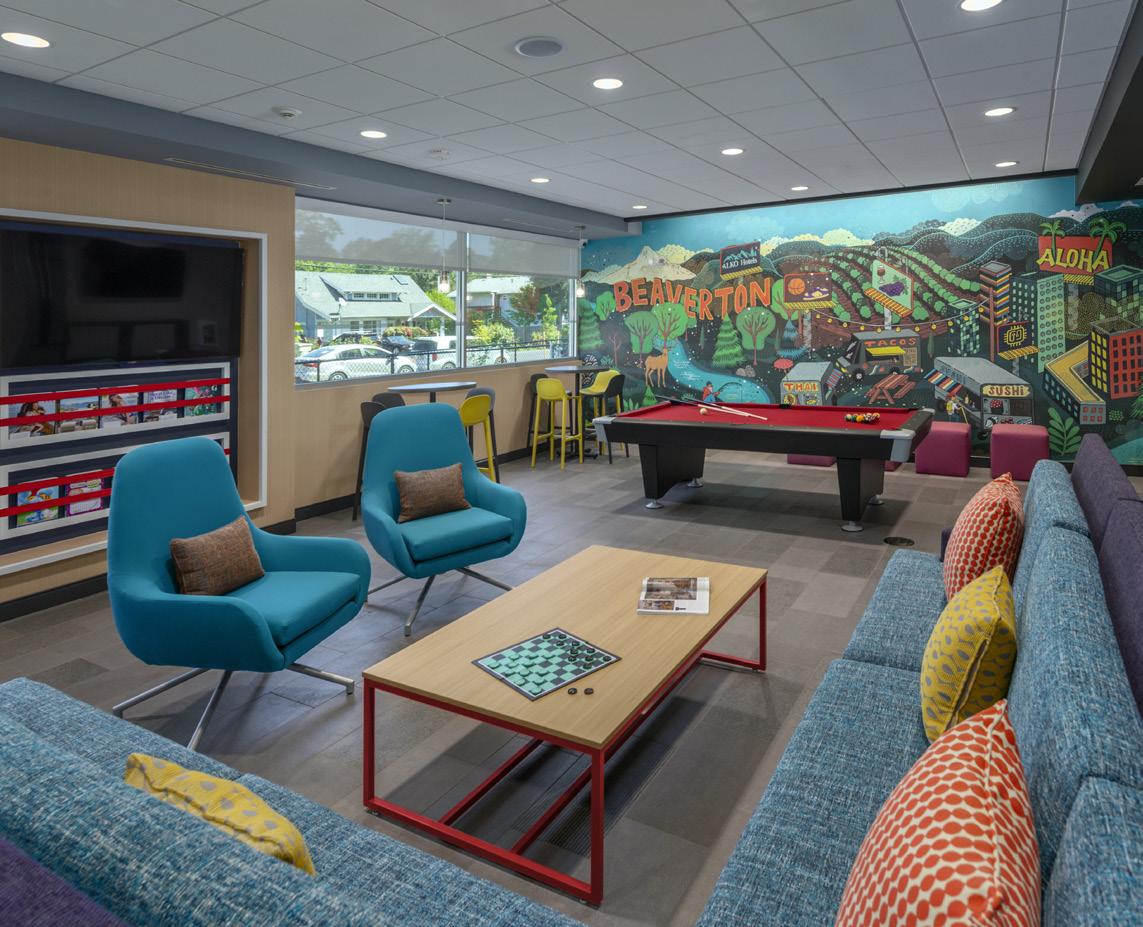
The table shows the new penalties for violations including first-instance and serious physical harm. Penalty adjustment calculations will be based on good faith effort, immediate corrections, size of the business and history of violations.
Of note is the increase in penalties for “first-instance other than serious” with a new maximum penalty of $16,475 and the new maximum penalty for a repeat violation which is $164,759 or approximately ten times the first-instance maximum penalty. More information can be found at https://osha.oregon.gov/Pages/ topics/violations-and-penalties.aspx.
OLCC 2-year Operators License
ORLA has been in ongoing conversations with the Oregon Liquor and Cannabis Commission (OLCC) about licensees having the option to apply for and obtain a two-year license. The intent with a two-year license would be to make the option available so long as the operator does not have any violations. In addition to reducing paperwork, a two-year license would also help operators save on administrative costs and time spent managing renewals, allowing them to focus more on running their business and staff training instead of repetitive paperwork cycles.
ORLA continues to work with OLCC staff and leadership on the details and development of the two-year license. Due to technology challenges and OLCC’s current undertaking of building the new warehouse, a projected date on when two-year licenses would be available is December 2026.
us today to discuss your next project
Health Inspection Fee Increase
Multnomah County Commissioners Meghan Moyer and Julia Brim-Edwards proposed an amendment to reduce a health inspection fee increase for food service from 33 percent to 10 percent, which initially passed with a 3-2 vote by the board. However, in the final days of the budget process, Commissioner Jones Dixon made a motion to reconsider and changed his vote, causing the amendment to ultimately fail.
When the proposal was first introduced, ORLA met multiple times with County Chair Vega Pederson’s office and Health Department staff to stress the hardships such a drastic fee increase of 33 percent would create for operators. ORLA advocated for lowering the increase to 10 percent or implementing a gradual increase over several years to ease the burden on businesses. Throughout the budget process, ORLA and Portland area hospitality members wrote to the Commission, submitted testimony, and proposed alternative solutions in support of the amendment. However, the Multnomah County Health Department opposed the amendment, stating that lowering the fee increase to only 10 percent would require staffing cuts too severe to support the reduction.
The new fees will take effect January 1, 2026, and will apply to businesses handling food, providing lodging, and operating pools. According to Multnomah County, the Health Department plans to communicate with approximately 4,000 licensees about the new fee structure before it takes effect.
Local Leadership Teams Engage with Policymakers
Earlier this year, the Portland Lodging Alliance (PLA) and Portland Kitchen Cabinet (PKC) met with Multnomah County Commissioner Moyer for a robust discussion on the proposed health inspection fee increases. Commissioner Moyer agreed there should be alternative ways to fund the Health Department’s budget needs and showed her support by proposing a 10 percent increase instead of 33 percent (see Health Inspection Fee Increase.)
Portland area members also met with Congresswoman Maxine Dexter to discuss the importance of improving Portland’s national perception and advancing the Credit Card Competition Act (CCCA). The CCCA would require large banks to allow merchants to process credit card transactions through at least two unaffiliated networks rather than being limited to a single dominant network, with the goal of lowering fees and potentially reducing costs for both consumers and businesses.
In the coming months, PLA and PKC meetings will host Portland City Councilors, the Portland Police Bureau, and Metro's Food Waste program, among other community partners. If you are interested in getting involved in these Portland leadership teams or in our other regional leadership teams, contact Makenzie Marineau, ORLA’s Government Affairs and Regional Leadership Teams Coordinator, at MMarineau@OregonRLA.org. ORLA GOVERNMENT AFFAIRS TEAM
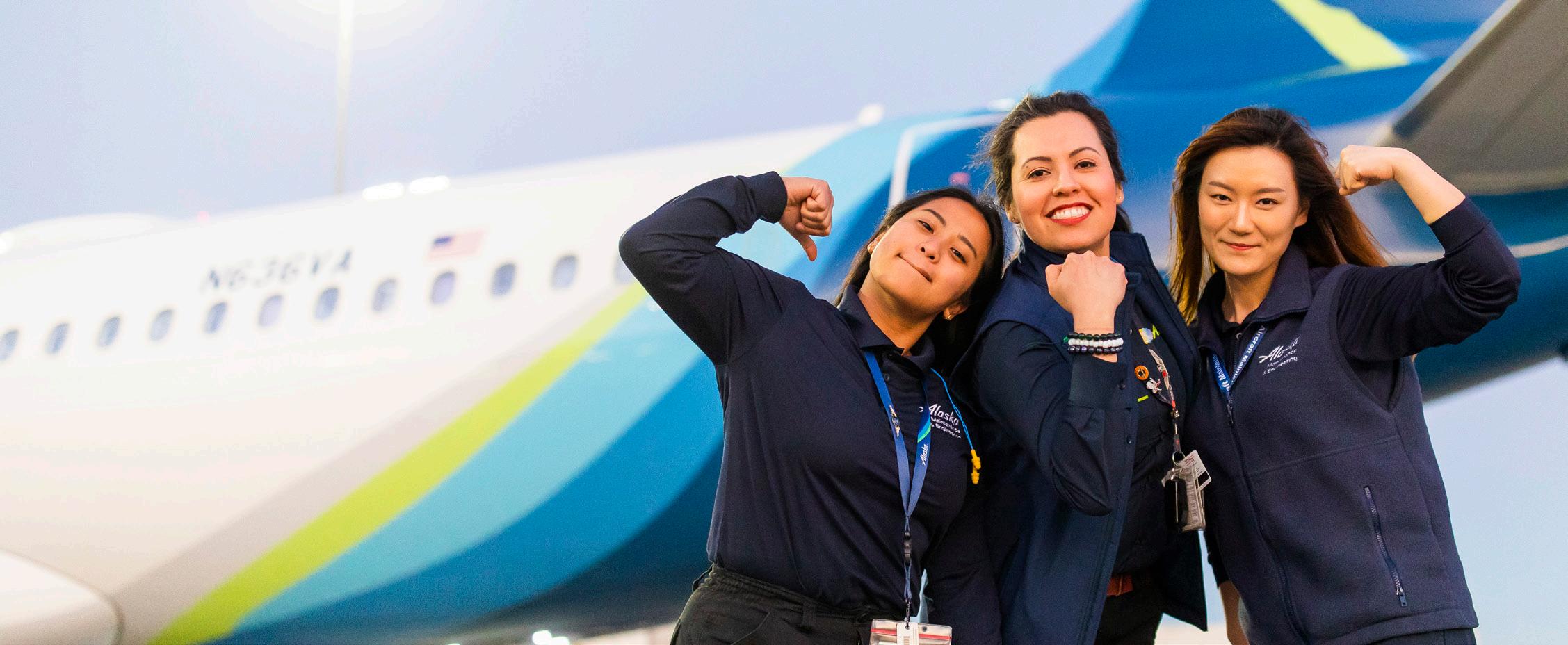
INDUSTRY CHAMPIONS
Leaders Serving Oregon and Making a Difference in Public Service
Across Oregon, industry leaders are stepping up to serve not only their businesses but their communities. In this issue, we are proud to spotlight four association members who are serving in elected or appointed positions across the state. Their commitment to public service is admirable, and their leadership within both hospitality and government offers a unique perspective on the issues shaping our communities.
Through a Q&A, these industry champions share why they chose to serve, what they have learned along the way, and how their experiences in hospitality have prepared them to lead with purpose and passion. We believe their stories will inspire and encourage all members to see the power of industry voices in shaping Oregon’s future.
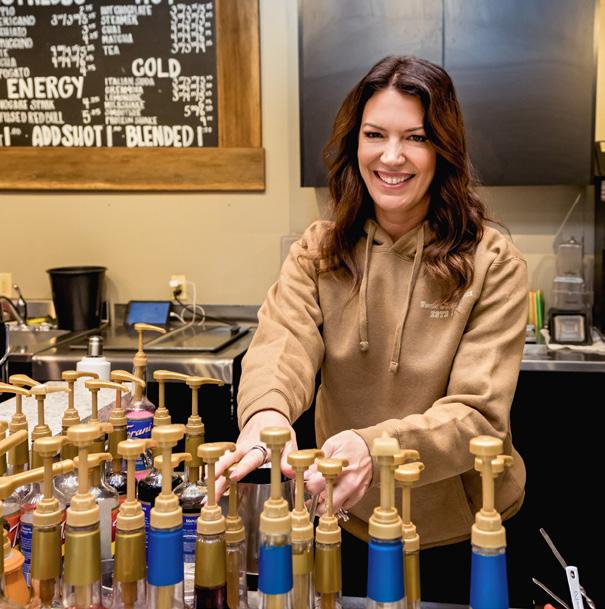
REP. LUCETTA ELMER
Oregon House of Representatives
Your journey from hospitality operator to public service is inspiring— what sparked your decision to get involved in advocacy, and how did that evolve into serving in an official capacity?
I never planned on getting into politics. I was busy running small businesses, like my coffee shop, Union Block Coffee and boutique hotel, Douglas on Third, in downtown McMinnville, as well as raising my family and doing my best to be involved in my community. But over time, I saw how decisions made in Salem were directly affecting our business and our employees – and not always in a good way. I started speaking up, then advocating and eventually realized that if I wanted things to change, I needed to bring that real-world experience to the table myself.
How has your experience running a hospitality business shaped your approach to policymaking or advocacy in your current role?
Hospitality is about people – making them feel seen, heard and valued. That mindset has shaped how I approach public service. In our business, we solve problems quickly, manage tight budgets and serve a wide range of people with different needs and expectations. That same lens helps me approach policymaking with practicality, empathy and a focus on outcomes that actually work for the communities I represent.
Why is it critical for the hospitality industry to have a voice in government and civic leadership?
The hospitality industry is one of Oregon’s economic cornerstones – employing thousands and creating experiences that define our
communities. Yet too often, decisions are made without fully understanding how they impact restaurants, hotels and tourism-based businesses. When hospitality professionals are part of the conversation, we bring insight, resilience and a can-do spirit that can help shape better, more balanced polies for everyone. That’s why I am so grateful for organizations like ORLA – they give our industry a strong voice and help make sure policymakers understand what’s really at stake.
Public service comes with its own set of challenges—what drives you to serve, and what do you hope to accomplish on behalf of the hospitality community?
What drives me is a deep love for Oregon and a desire to leave it better for the next generation. I’m passionate about building a government that listens, supports small business and creates opportunity rather than obstacles. For the hospitality community, that means fighting for a regulatory environment that’s fair, policies that reflect the realities of our workforce and a renewed focus on revitalizing our main streets and visitor economy.

JOE BENETTI
Mayor, City of Coos Bay
What inspired you to get involved in public service, and how did that evolve into serving in an official capacity?
My journey into city politics began like that of many citizens: by attending city council meetings and engaging in discussions with the city manager about various concerns and issues. During one of our conversations, the city manager told me that I needed to take action. I explained that I was already addressing these concerns by speaking up, but he encouraged me to do something more. He suggested that I run in the upcoming city council election, which I decided to do. To my surprise, I was elected, and I haven’t looked back since.
How has your experience running a hospitality business shaped your approach to policymaking in your current role?
I approach my role much like I would manage my restaurant or any other business. I have often heard people suggest that public entities should operate like businesses, and I agree with this perspective. Being in the business world compels us to address operations and issues that directly impact our bottom line. I feel our most important aspect is common sense, which I see lacking in the political world.
Why is it critical for the hospitality industry to have a voice in government and civic leadership?
The hospitality industry is frequently overlooked by government officials
and civic leaders. It is crucial for our industry to actively participate and express our concerns; otherwise, we risk being taken advantage of and not being recognized as a significant driver of economic growth in our communities, state, and nation. Our industry plays an essential role in our communities, yet we often find that our contributions go unacknowledged or disrespected. I encourage everyone in the hospitality industry to get involved!
Public service comes with its own set of challenges—what drives you to serve, and what do you hope to accomplish on behalf of the hospitality community?
I serve and continue to serve because I hope to make a difference, and I am committed to doing so. I know that we in the hospitality industry collectively can accomplish what is good for the industry and the communities. I am committed to making things better for my community and state, which I hope will benefit the hospitality industry.
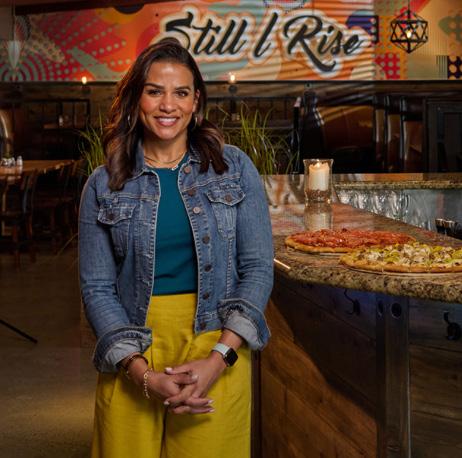
KIAUNA FLOYD
President, Amalfi’s Italian Restaurant and former OLCC Commissioner
What sparked your interest to get involved in the OLCC, and how did that evolve into serving in an official capacity?
As a restaurant owner, I’ve spent years navigating the regulations that shape our industry, especially those related to alcohol service. Over time, I developed a strong interest in how those policies are made, who they affect, and how they could be improved to better reflect the realities we face in hospitality. When the opportunity arose to serve as an OLCC Commissioner, I saw it as a way to bring a frontline perspective to the table. My goal has always been to ensure that policy decisions are informed by real-world experience and guided by both public safety and business sustainability. Serving in this capacity has allowed me to contribute to a more balanced, transparent, and responsive regulatory process.
How has your experience running a hospitality business shaped your approach to policymaking or advocacy in your current role?
Hospitality teaches you to think on your feet, lead with empathy, and solve problems quickly - often with limited resources. That mindset has been invaluable in my role as a Commissioner. I approached policymaking with a clear understanding of how regulations play out in real time: how a rule change affects staffing, service flow, customer experience, or even the bottom line. My goal was to advocate for policies that protect public safety while also being practical and supportive of the businesses that bring so much vitality to our communities.
Why is it critical for the hospitality industry to have a voice in government and civic leadership?
The hospitality industry is one of the largest private-sector employers in the state and a vital contributor to our economy and culture. Yet too often, our voice isn’t present when key decisions are being made. Without representation, policy can become disconnected from operational reality, leading to burdens that hurt small businesses and the people who depend on them. When hospitality professionals are at the table - whether in commissions, advisory groups, or elected office - we can help shape solutions that are fair, effective, and grounded in real-world experience.
Public service comes with its own set of challenges - what drives you to serve, and what do you hope to accomplish on behalf of the hospitality community?
I’m driven by a strong sense of responsibility to give back to the industry that has given me so much. Hospitality is about creating space for people to connect, celebrate, and build community - and that spirit translates directly into public service. Through my work on the OLCC, I hope to be a bridge between the hospitality sector and state leadership, helping to ensure that our industry’s needs, contributions, and perspectives are understood and respected. My goal was to support a regulatory environment where businesses can thrive while upholding the values of public safety and community impact.

JULIE HOY
Mayor, City of Salem
Your journey from hospitality operator into public service is inspiring—what sparked your decision to get involved in advocacy, and how did that evolve into serving in an official capacity?
I have worked for decades in service of others. I sought a miracle for my husband… and then… without any restaurant ownership experience… we owned one. That led me to the Chamber of Commerce for education by fire and incredible networking opportunities. I learned from my peers in business. My involvement on the Chamber Board of Directors brought insight into policy and decision making which impacted business owners… myself included. Then came our Sysco representative on a Monday. Usually, he would just pick up a check. Then one day he showed up and said he had heard my name bouncing around at a party and he and others wondered if I would ever consider running for City Council in Salem.
How has your experience running a hospitality business shaped your approach to policymaking or advocacy in your current role? Policy matters. Local decision makers have the power to be supportive
and the power to cause harm through regulations and limitations. The restaurant business is tough enough. Those of us engaged in the hospitality industry pivot like crazy and long before the current popularity of the concept was widely felt. The entrepreneurial spirit… no matter what the business… needs boundaries and room to grow and thrive.
Why is it critical for the hospitality industry to have a voice in government and civic leadership?
Owners/operators in the hospitality industry put in long hours. Our restaurant is open seven days a week 362 days of the year. It’s hard to make time for all things. If anyone is like me… government and civic leadership is not on the radar. For my whole life I trusted that elected officials are doing what they can… and looking out for the best of all of us. Truth is… that is a dangerous state of mind. If business owners don’t show up in public meeting spaces whether to hold office or show up to offer public testimony along the way.
What drives you to serve, and what do you hope to accomplish on behalf of the hospitality community?

These are strange days, and I am not a politician. I think the work we do in city government shouldn’t be called “politics.” The work we do is Governance and with right motivation it has the potential to be “good governance.” When I first decided to run for office, I called a dear friend to inform. He said this, “As much as I don’t want you anywhere near those spaces or the people in them… I think you’re the only one who can do the job and do it right. You are the kind of person this community needs, and if you get elected, you’re going to be really good at it.” And that brings me back to my faith. Bottom line is, I feel called to this work. My husband and our staff are making up for me when I can’t be at the restaurant. I am here to do my absolute best. I am listening, learning and growing. I want to hear from the industry and to do whatever I can to be of help. I am here to serve.
Want to start small? Engage with ORLA on state or local advocacy work – we can always use your voice! Give us a call at 503.682.4422 and check out several opportunities outlined on our website at OregonRLA.org/getinvolved. LORI LITTLE, ORLA
Chefs really have an appetite for
NATURAL GAS COOKING
With the control and convenience of natural gas, cooking is never a chore. Whether it’s your first time using a natural gas cooktop or range, or you’re a seasoned pro, enjoy cooking with natural gas equipment to create memorable experiences with the foods your customers crave.
Visit nwnatural.com to to learn more about the benefits of high-efficiency natural gas equipment for your business.
LEARN MORE

LEADING WITH PURPOSE
Strategies to Create a Strong Team
The hospitality industry is a sector that many citizens rely upon because it enhances the quality of our lives. From delicious foods to memorable hotel and lodging experiences, hospitality professionals are the ones who make it happen. While the work is instrumental to our society, like any industry, it has its own set of challenges.
Surveys and research have shown that roughly 50 percent to 75 percent of hospitality organizations struggle with employee turnover in their operations. Employee turnover can cost organizations upwards of 60 percent of an employee's salary. These figures amount to billions of dollars collectively in the hospitality industry.
I am convinced that the cost of these factors is not only financial, but there is also an emotional cost, a cultural cost, an efficiency cost, and a growth cost associated with this data. In order for us to see a greater shift in these challenges, it takes a special kind of leader; specifically, it takes a DifferenceMaker Leader™. A DifferenceMaker Leader™ is someone who understands how to manage the duality of personal and team potential in order to generate future success. When we are equipped with the right skill set and mindset, it positions us to curate a culture where employees want to stay and give their best.
There are three key pillars to embracing this leadership style: 1) Vision, 2) Connection, and 3) Consistency. Here's how to translate these pillars into actionable strategies within the hospitality sector:
1. CULTIVATING A ROBUST VISION
Roughly about half of managers have been reported to have a weak future outlook. In other words, about half of managers or leaders lack a strong vision for the future. So, the question is not how we can create another vision; instead, the conversation
needs to shift to how we can create a robust team vision?
A robust team vision is one that transcends daily tasks and inspires employees to connect with a purpose beyond the bottom line.
When we create a robust team vision, we need to be mindful of these questions: Is this team vision about me or we? Is this vision adaptable to changing circumstances? Is this team vision in alignment with the overall organizational vision? Cultivating a robust team vision is essential for fostering a motivated and engaged workforce. It encourages creativity, innovation, and collaboration, as team members feel a sense of belonging, regardless of title, because there is a pursuit of shared purpose.
2. BUILDING AUTHENTIC TEAM CONNECTIONS
Building a connection is the next step in the framework because when this pillar is put in place, it will make everything else run more smoothly. Because here’s the truth: when people know their leader and their team care about them, they commit to their work and the vision you all are working toward at a whole new level. In order to build stronger connections with our team, we need to incorporate two qualities: 1) Be open-minded and 2) Demonstrate empathy.
Open-Minded
We are in an era that is constantly changing—from consumer expectations to technology to workforce generations. What may have worked eight years ago may not work today. So, it is incumbent upon us as leaders, regardless of age and experience, to approach each day with confidence, but also curiosity. This involves listening to diverse thoughts, seeking input from frontline employees to upper leadership, and not placing ourselves in an echo chamber. By embracing being
open-minded, we position ourselves to be a listening ear to our team's thoughts, ideas, and concerns—which ultimately will elevate our team connection.
Empathy
The second area to adopt is empathy when we are thinking about building stronger team connections. In my meta-analysis of employee retention, turnover, and engagement, my discoveries often circle back to a lack of empathy being infused in the culture. Empathy is our equalizer. Once we embrace this quality, we instinctively become innovative in how we work with, how we lead, and serve people. The teams and organizations that elevate the most are the ones who have a high care factor for the people they serve.
3. DEVELOPING CONSISTENCY
If we truly desire to see a shift in our teams and culture, it does not take one huge action; instead, it takes small, daily behaviors that reinforce the identity of our organization. While market conditions change, our core values should not. A connected and cohesive team does not materialize after one great month; it is a constant pursuit that is ingrained daily.
Often, individuals can become so consumed with their work that they forget what they are emanating. Every leader should be mindful of the behaviors and actions that are being displayed daily because teams ultimately do not model what they hear; they model what they see.
These three core pillars can help us lower employee turnover, build a stronger culture, and serve as guidance as we lead our teams.
Austin J. Franklin
ABOUT
Austin J. Franklin is a renowned keynote speaker, leadership expert, and author. He will be presenting his “Think Like A DifferenceMaker Leader” keynote at the 2025 ORLA Hospitality Conference this September!


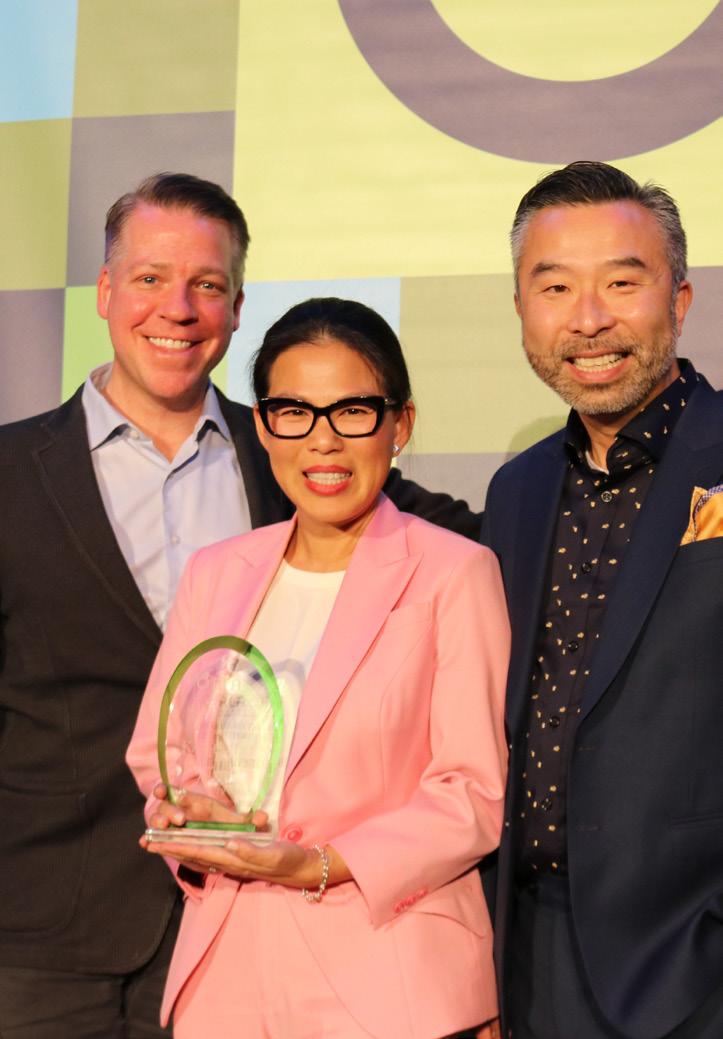








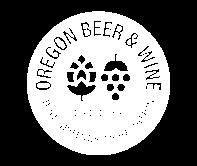
ORLA Hospitality Conference Schedule*
SATURDAY SEPTEMBER 13, 2025
11:30-4:00 pm WITH Symposium

Women in Tourism & Hospitality Symposium: empowering attendees with actionable insights.
5:45-6:30 pm Welcome Reception 6:45-8:30 pm Seaside Dine Around
SUNDAY SEPTEMBER 14, 2025
Morning Breakfast on your own; Seaside Experiences
12:00-1:30 pm Lunch & Keynote 1:30-2:15 pm Vendor Showcase
2:15-3:15 pm Breakout Sessions 3:25-4:25 pm Breakout Sessions 5:15-6:15 pm Awards Reception 6:15-8:30 pm Industry Awards Dinner
MONDAY SEPTEMBER 15, 2025
8:00-9:00 am Breakfast 8:25-8:55 am Member Meeting 9:00-10:00 am Keynote Presentation 10:00-11:00 am Vendor Showcase 11:00-12:00 pm Breakout Sessions 12:10-1:10 pm Breakout Sessions 1:15-2:30 pm Lunch & Keynote
KEYNOTE SPEAKER

Think Like A DifferenceMaker™ Leader: Discover how to Unlock your Personal & Team Potential
Austin J. Franklin, Author
As leaders, we each have the ability to make a meaningful difference. Despite disruptions and uncertainties, we can still flourish. When we make a meaningful difference, lives become inspired, situations positively shift, and desired results are often achieved. Austin will lead a discussion that invites hospitality professionals to explore research-based ideas that will position their organizations for a future-ready and thriving workplace.
GENERAL SESSIONS

Federal Advocacy for Lodging & Tourism
Chirag Shah, American Hotel & Lodging Association
This session will explore key federal advocacy priorities shaping the lodging industry, including workforce development, short-term rental regulations, and tax policy. Learn how national efforts are influencing legislation and protecting the industry's future.
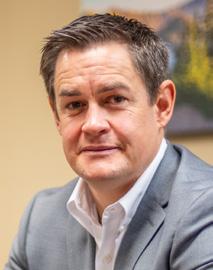
ORLA Member Meeting
Jason Brandt, ORLA
ORLA continues to build strength in advocacy, providing products and services of value to members, curating industry intelligence, and developing our workforce. Hear a briefing on the state of the Association and participate in the election of the ORLA, ORLAMS, and Oregon Hospitality Foundation Boards of Directors.

Essential AI Tools for Hospitality
Janell Goplen, Coltella
Discover five must-have AI tools transforming hospitality
operations—from text-to-reservation systems to smart front desk communication. This interactive session will showcase real-world examples and live demos to help you identify and apply the right tech for your business.
BREAKOUT SESSIONS


State & Local Advocacy in Action
Greg Astley, ORLA; Bill Perry, Balance Point Strategies
ORLA’s government affairs team leads a panel discussion on key outcomes from the 2025 legislative session and share insights on what’s ahead for 2026. This session will also cover state and local advocacy priorities and how members can stay engaged on the issues that matter most.
Policy, Prices, and Protection: What’s Next for Oregon Restaurants
ORLA, restaurant panel
Oregon restaurant operators face rising food costs and shifting public policy—but statewide preemptions shielded them from burdens like local wage and scheduling mandates seen in other states. This panel will explore current advocacy priorities, from egg pricing relief to food cart legislation, and how operators can stay engaged to protect and shape the future of the industry.

Tapping Into the Workforce: How to Find Skilled and Dedicated Employees Through CBO Partnerships
Ella Sturdevant & Rebecca Donley, Oregon Hospitality Foundation; panelists from Opportunity Oregon, IRCO, and Vocational Rehabilitation
A Community-Based Organization (CBO) is a non-profit entity dedicated to providing support, services, and resources to a designated community. Several Oregon-based organizations are actively seeking hospitality pipelines for their job-seeking clients. This panel talks about the unique benefits of
working with the organization's client group and discussing the training, skills, and support employees receive during the job-seeking process. Learn how CBOs utilize these qualities to find the right applicants for you.
Staying Compliant: Employment Law Essentials
Barran Liebman LLP
From hiring practices to wage laws, Oregon’s lodging and restaurant operators face a complex employment law landscape. This session covers key compliance updates and practical strategies to help businesses navigate evolving state and federal requirements with confidence.


Navigating Opportunities: Balancing Privacy and Data Protection with Growth
Josh Piper and Eva Novick, Miller Nash LLP
This session will explore growth strategies through licensing and franchising, outlining the benefits and risks of each model. It will also cover privacy and data security challenges in franchising, offering best practices for protecting sensitive information and ensuring legal compliance.
Successful Restaurant Service Models
Panel of restaurant operators
Hear from a panel of restaurant operators as they share real-world insights, best practices, and lessons learned from evolving service models. Walk away with practical takeaways you can apply immediately to improve efficiency, guest experience, and team performance.
ADDITIONAL FUNCTIONS
OREGON PROSTART:
Building the Future of Hospitality, One Student at a Time
Oregon’s hospitality industry is growing—and so is the demand for a trained, enthusiastic, and reliable workforce. From bustling restaurants and boutique hotels to event venues and resorts, employers across the state are asking the same question: Where do we find the next generation of hospitality talent?
The answer might be closer than you think.
Each year, more than 7,700 high school students across over 50 Oregon schools are preparing for careers in culinary arts and restaurant management through ProStart, a nationally recognized, industry-backed program that offers both hands-on experience and essential employability training. ProStart is more than a class; it’s a career pathway— and a solution to Oregon’s workforce needs.
What Is ProStart?
ProStart is a two-year high school program that blends culinary education with restaurant management training, developed by the National Restaurant Association. In Oregon, it’s supported by the Oregon Hospitality Foundation and Oregon Restaurant & Lodging Association and made possible through partnerships with local educators and industry leaders.
ProStart students learn more than just how to hold a knife or take an order. They gain real-world experience in a range of areas, including menu costing, food safety, customer service, leadership, and inventory control. The program cultivates essential skills critical to success in any hospitality environment, including communication, teamwork, professionalism, and time management.
“ProStart CTEC programs prepare students to enter the workforce with essential human and employability skills of communication, teamwork, leadership qualities, positive approach, and problem-solving skills,” says Paul Paz, industry veteran and founder of WaitersWorld. “These skills are essential
for any job in any industry. Restaurants, lodging, travel, tourism, and events are key players in developing America’s future workforce.”
Meeting the Moment: 34,000 Jobs on the Horizon
According to the Oregon Employment Department, between 2022 and 2032, the state expects to see over 34,000 new jobs in restaurants, hotels, and arts, cultural, and recreational establishments. That number reflects not just a growing industry, but a pressing need.
Business owners are already feeling the pinch. Hospitality jobs are among the hardest to fill, and finding candidates with the right attitude and skills can be a challenge. That’s where ProStart comes in.
ProStart students are trained, motivated, and eager to work. Many are ServSafe certified, have completed internships or catering events, and participated in statewide competitions like the Oregon ProStart Championships. They enter the workforce with a foundation that sets them apart—and sets them up for success.
“Hiring ProStart students is a win-win!” says Jacqi Pressinger, Cruise Industry Relationship Manager at Seatrade Cruise Events. “I recommend bringing these rising culinary and hospitality professionals onto your team because they offer more than just job-ready skills and hands-on experience — they show up with hustle, heart, and pride the moment they step into your kitchen. Hiring ProStart program students means investing in a stronger, more passionate, and better-prepared next generation of industry leaders — and that’s not just a feel-good move, it’s a smart, strategic advantage for any business.”
Real Students, Real Success
Across Oregon, the impact of ProStart is evident in students’ achievements and educators’ pride.
“As a former ProStart graduate and COA recipient, I can attest wholeheartedly to the benefits of this amazing program,” says Krista Carpino, ProStart Educator at Dayton High School.
“I’m in my 17th year teaching this program to young individuals aspiring to succeed in this prosperous career field. One of my graduates recently earned Student of the Year, placed in multiple statewide competitions, and represented Oregon nationally. Today, she’s in culinary school leading her class. I can confirm that ProStart equips students with the mindset, skills, and ability to excel in the workforce.”
Educators across the state echo that sentiment.
“My ProStart graduates are very well equipped to go into the industry and be leaders in hospitality, foodservice prep, and sanitation,” says Heidi McManus, Tualatin High School.
“Students interested in pursuing postsecondary opportunities leave the program with a strong foundation to grow their curiosity and elevate their career path.”
Even industry icons are taking notice.
“ProStart is such an important program—I wish it existed when I was a kid,” says Chef Plum, six-time Emmy Nominee and nationally recognized culinary personality.
“Hiring new personnel is always difficult, but when you bring someone on who already has the background and foundation, it gives you a sense of confidence. I wish every profession had a ProStart program.”
A Statewide Talent Pipeline
No matter where your business is located, urban or rural, coast or high desert, there’s a ProStart school near you. From Portland to Medford, Seaside to Pendleton, the program reaches students in all nine regions
of Oregon. A few of the 50+ participating schools include:
• Career Technical Education Center (CTEC), Salem
• North Medford High School, Medford
• Tualatin High School, Tualatin
• Crescent Valley High School, Corvallis
• Forest Grove High School, Forest Grove
• Willamette High School, Eugene
• Pendleton High School, Pendleton
• Seaside High School, Seaside
With every school comes an opportunity to mentor, to sponsor, and to hire.
Why the Industry Must Act Now
The workforce crisis is not going away. The hospitality industry needs more than just warm bodies; it requires passionate, skilled individuals who are eager to grow in the field. That’s exactly what ProStart delivers.
When you connect with a local ProStart school, you’re not only investing in a student, but you’re also investing in your business, your team, and your industry. These students bring energy and ideas, along with a unique readiness you won’t find in most entry-level hires.
Here’s how you can make an impact:
• Hire ProStart students for part-time, seasonal, or full-time roles
• Offer internships, job shadows, or mentorships
• Speak in classrooms and share your career journey
• Host site tours to show students what real hospitality work looks like
• Sponsor a school(s) with tools, ingredients, or financial support
• Adopt-a-School and build a long-term partnership
Be Part of Something Bigger
By stepping into the ProStart ecosystem, you help students succeed—and help close the hiring gap in a way that benefits everyone. The next great chef, manager, or hospitality educator may already be training in a school near you.
Let’s invest in that future together.
If you’re interested in connecting with ProStart students or have any questions, please contact me at csmith@oregonrla.org or visit www.oregonrla.org/prostart.
ProStart isn’t just about food or service; it’s about creating careers, building communities, and securing the future of Oregon’s hospitality industry. Let’s open the door together.
COURTNEY A. SMITH, OREGON
HOSPITALITY FOUNDATION
BAKER
MALHEUR
The POWER of PARTICIPATION: Why Advocacy Matters for Oregon’s Hospitality Industry
From family-owned restaurants in rural districts to major hotels in bustling city centers, Oregon’s hospitality industry fuels the state’s economy, generating over $14 billion in annual sales and supporting more than 179,000 jobs, according to the Oregon Restaurant & Lodging Association (ORLA).
Yet the industry faces mounting challenges. That’s why advocacy is so essential. Policies drafted in legislative chambers affect everything from wages to taxes to how a restaurant can design its outdoor patio. Without a strong, informed voice representing our interests, we risk being left out of critical conversations.
That’s where ORLA comes in. The organization plays a central role in advocating for fair policy, educating lawmakers, and amplifying member issues. “I know the impact that a leadership group like ORLA has on our industry in advancing our concerns with legislators and decision makers,” said Jim Smith, owner of Mountain Mike’s Pizza and Cascades Coffee House in Medford.
While ORLA has made major strides, real change depends on increased grassroots
involvement. The future of Oregon hospitality will be shaped not just in the Capitol, but by operators who step up and speak out.
Advocacy in Action
Whether it’s new labor laws, shifting tax structures, or arbitrary local ordinances, policy decisions have immediate and lasting effects on the hospitality sector. That’s why strong industry advocacy is essential.
Lawmakers may mean well, but they often lack the firsthand business experience to fully understand the consequences of their decisions, explained ORLA President & CEO, Jason Brandt. "Without a concerted effort in a unified voice, it would be very easy for any industry to get run over with new regulations and taxes,” he added.
Take a recent win: Ballot measure 29-183 to raise Tillamook County’s Transient Lodging Tax (TLT) from 10 to 14 percent was defeated—by just 12 votes—thanks to grassroots efforts of short-term rental members and ORLA's opposition campaign.
These types of measures directly affect small businesses like Happy Camp
Hideaway in Netarts. Like countless members of the hospitality industry, owner and operator, Bruce Love, is still recovering from the pandemic, so HB 29183 would’ve only set him back further.
Adding insult to injury, Tillamook County Commissioners have argued that the proposed 40 percent increase in the transient lodging tax won’t hurt local businesses because it’s paid by visitors. But according to Love, this view reflects a fundamental disconnect between local government and the realities faced by lodging operators. “To ensure the sustainability of our industry, it’s crucial that we foster communication and cooperation between local businesses and government entities,” he said.
There’s no doubt that advocacy makes a difference, and the numbers back it up.
In the 2023 legislative session, House Bill 3159 proposed doubling Oregon’s statewide lodging tax from 1.5 percent to 3 percent. The hospitality industry pushed back, warning that the increase would make it harder for local lodging businesses to compete with destinations outside the state. By ORLA’s calculation, stopping HB 3159 garnered an average annual savings of $77,000 per establishment.
MEMBER SPOTLIGHT
From Local Voices to Legislative Victories
Effective advocacy doesn’t just happen in Salem. It starts with local operators stepping up. These are just two examples of how member engagement helped drive policy changes.
Not Passing the Smell Test
In a high-profile case, Portland’s Vietnamese restaurant Pho Gabo was forced to close in 2024 after an 18-month dispute with the city’s Bureau of Development Services. Throughout that time, the restaurant faced repeated inspections, multiple fines, and was ultimately ordered to install a $40,000 air filtration system, all triggered by anonymous odor complaints from a nearby resident.
The issue wasn’t a clear code violation; it was the absence of measurable standards. The complaint against Pho Gabo stemmed from a vague allegation that the neighborhood “smelled like a wok dish,” with no objective criteria to support enforcement.
Chefstable Group owner, Kurt Huffman, wasn’t a stranger to this issue. In fact, he’d received an odor complaint about one of
his own restaurants, Bluto’s, due to the use of a wood-fired grill. Yet, once again, there weren’t any objective measures in place, like smoke or particulate thresholds, that the restaurant failed to meet.
When Huffman asked for other examples of cited restaurants, he noticed a troubling pattern: most served Asian cuisine. That’s when he turned to ORLA and became a vocal proponent of the organization’s efforts to get restaurants excluded from Portland’s odor ordinance.
The result was an amended code that went into effect March 2025, after the Portland City Council unanimously approved updates to the city's odor code, exempting businesses like restaurants, coffee shops, and nail salons from these regulations.
“For me, this was one of the great examples of the efficacy an organization like ORLA can have,” said Huffman. Not only in standing up for its members, but in protecting something bigger: the reputation of Portland as a vibrant, diverse food destination that draws visitors from around the world.
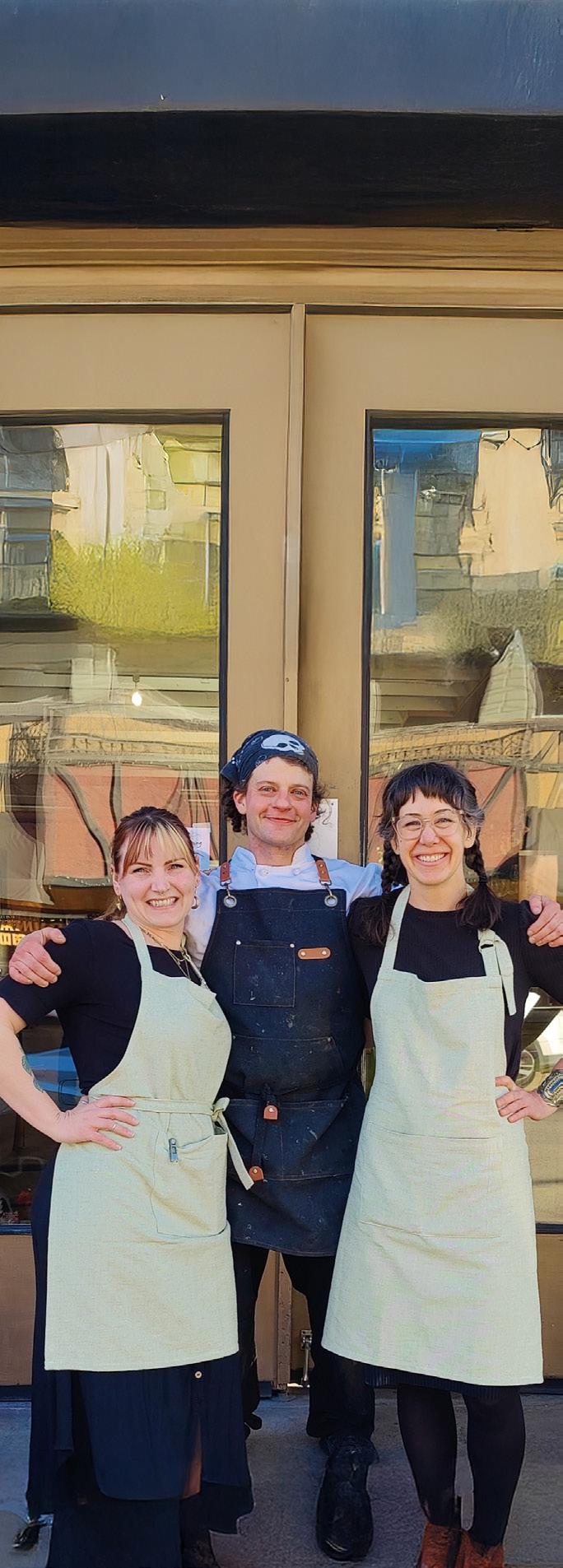
“We are ORLA members so that we have the best chance to share our voice and needs as restaurant and hospitality owners. With the assistance of ORLA, we stay up to date on changes in the legislature while being a part of the fight for our industry.”
“ORLA offers great connections with other restaurants and hospitality establishments and allows us to become a stronger team because of it.”
- MOLLY SHAUGHNESSY Beverage Director & Partner, Nous, Ashland

MEMBER SPOTLIGHT

“ORLA helps promote our voice to the broader market while also advocating for our industry's needs at every level.”
“It's all about community and advocating for our industry together.”
-
PAUL PATINO General Manager, Woodlark, Portland
Getting Involved in Government Affairs
Challenging Portland’s odor ordinance is a strong example of advocacy in action, with a tangible, immediate result. But not all victories happen that quickly. Often, real impact comes from engaging early in the legislative process as policies are being shaped.
As someone who loves politics, Jim Smith was excited for an opportunity to join ORLA’s Government Affairs Committee. It gave him a front-row seat to policy discussions and a meaningful role in shaping outcomes that affect the entire industry “Ensuring that the playing field is equitable, fair, and gives everybody a chance to win is greatly rewarding and important to me,” he said.
Most legislators don’t have firsthand experience running a business, especially not in hospitality, which makes it even more important for knowledgeable industry voices to regularly inform and advise decision-makers. It’s also vital since owning and operating a restaurant is a full-time job as it is. Expecting small business owners to stay up to date on hundreds of pieces of legislation, to know when to reach out to their local representative, and have the free time to potentially be called to testify is a big ask.
Keturah Alger, owner of Laughing Clam in Grants Pass, credited her ORLA rep for going to every city council meeting and keeping local businesses informed about measures that would affect them negatively.
That’s how she heard about a potential 5 percent meal tax the city council was trying to pass without a public vote. “Obviously, we don't want that kind of tax with everything else we've got stacked against us in the current economy,” said Alger.
After pressure from restaurant operators who took to the street with signs and testified along with ORLA, the Grants Pass City Council voted against the tax in February 2024.
Legislation and Rising Costs Threaten Hospitality’s Path to Recovery
While the threats to the hospitality industry are constant—rising food costs, workforce housing shortages, and shifting regulations—it can be easy to forget the fact that many operators are still recovering from COVID-19.
Oregon lawmakers rejected House Bill 2977, which proposed a 1.25 percent increase to the statewide lodging tax. While it was framed as a modest adjustment, the reality is a $45 million tax hike, one that would potentially make Oregon’s combined local and state lodging tax rates among the highest on the West Coast.
The past year has been especially tough for food service operators like Alger, with both customers and business owners feeling the financial strain. In Grants Pass, she’s seen a noticeable drop in lunchtime traffic. “I've just raised menu prices again, which makes me sick to my stomach,” she said. “But again, labor costs have gotten no cheaper, and food costs definitely haven't gotten cheaper.”
Legislative threats continued throughout the session. Thankfully HB 3962 was also rejected; it proposed loosening restrictions on how local lodging tax revenues can be used, shifting funds away from tourism promotion and economic development toward general municipal budgets. Meanwhile, HB 2977, which would have raised the lodging tax by 1.25 percent to support wildlife programs, passed the Oregon House but did not get voted out of committee on the Senate side. The concern within the industry is clear: if the Senate
followed suit, it could have set a precedent, opening the door for other groups to seek a share of lodging tax revenue.
These issues don’t go away on their own, so the cost of inaction is high. “Being in the restaurant or the lodging business might be your profession, but politics, unfortunately, has to be a part of your business,” said Brandt.
Grassroots Opportunities: How to Get Involved
Getting involved in advocacy doesn’t require a background in politics or hours of free time. Engagement can be as simple as staying informed or as impactful as leading a conversation with lawmakers. Owners and operators have powerful stories to tell and real-life experiences to share.
Start Small:
Begin by signing up to receive text alerts as a Hospitality Advocate. Go online to register or you can simply text "ORLA" to 52886. You can also write letters or make calls to elected officials to share your perspective. Making your voice heard can help shift opinions or even strengthen good decisions.
Level Up:
Ready to take your advocacy to the next level? Start by arranging a one-onone meeting with an elected official. Building that personal connection lays the foundation for an ongoing relationship that can make a real difference when industry issues arise. From there, consider attending city council or county commission meetings when hospitality is on the agenda. These public forums are a direct line to local decision-makers and a great way to show up for the industry.
Regional roundtables are another valuable way to stay informed and engaged. They bring together operators from your area to discuss challenges, share insights, and coordinate on local priorities.
For those looking to shape policy more directly, ORLA’s Government Affairs Committee is the place to be. Members from across Oregon come together to review legislation, vote on policy positions, and, when necessary, testify before lawmakers. During the legislative session, the committee meets virtually on a weekly basis, making it easy to stay plugged in.
Lead the Way:
If you already have working relationships with elected officials, take the next step by joining ORLA’s Oregon Hill Runner Program. This initiative is designed to foster meaningful, ongoing communication between hospitality leaders and lawmakers. As a Hill Runner, you become a trusted resource that legislators can turn to when crafting policy that affects the industry. It's a powerful way to ensure that real-world expertise shapes the laws that impact food and lodging businesses.
Strength in Numbers
ORLA has earned major wins for Oregon hospitality, but there’s always room for more voices at the table. The stronger our participation, the greater our influence. "Industries that advocate the best for themselves are the ones that thrive the most,” said Brandt.
And no one has to face these challenges alone. When restaurant and lodging operators come together, they can better navigate obstacles and build long-term resilience. “Partnerships with recognized state leaders like ORLA will be vital to our success,” Love added.
Visit ORLA’s advocacy hub to sign up for alerts and take the first step. The power of participation starts with you. KRISTA GARCIA
SAFETY, STAFF, AND SERVICE
A Hospitality Guide to Navigating Public Demonstrations
THE REALITY OF PUBLIC DEMONSTRATIONS
In the hospitality world, we’re accustomed to preparing for many kinds of events, from conferences and weddings to storms or wildfires. But one type of event that often catches businesses off guard is the public demonstration.
Peaceful protests are a normal and important part of civic life. They can also bring unpredictability: sudden street closures, large crowds, or tense moments that impact nearby hotels and restaurants. In recent months, cities across the country, including several in Oregon, have seen more frequent public gatherings, marches, and protests. While many remain peaceful and well-coordinated, others can strain local infrastructure or escalate in ways that affect the safety of employees and guests.
For operators in walkable downtowns, tourism districts, or urban neighborhoods, the presence of a demonstration just outside your door can spark tough questions: Should we stay open? What if employees feel unsafe? What do we tell guests? How do we prepare for crowd flow or disruptions—especially when it's 95 degrees outside and folks are looking for respite?
This guide isn’t about politics…it’s about practical preparation. It's designed to help hospitality leaders and frontline staff stay calm, stay safe, and stay operational when the unexpected happens just outside their lobby or dining room window. Whether you're managing a small inn, a waterfront café, or a multi-property hotel group, having a plan in place can help protect your people, preserve your reputation, and minimize disruption.
Read on for clear, adaptable strategies you can use to prepare your business, support your team, and maintain the high level of service your guests rely on—even during times of public unrest or uncertainty.
SECTION 1: SITUATIONAL AWARENESS AND PLANNING AHEAD
The best way to manage disruption is to anticipate it early. That begins with building situational awareness into your routine.
Plug into Local Information Channels
Stay informed through a combination of official alerts and community-based updates. Useful sources include:
• Your city or county’s emergency alert system (usually available by text or email).
• Neighborhood or regional public access media channels
• Social media platforms used by organizers, media outlets, and community groups.
Increasingly, platforms like TikTok, Instagram, and Twitter/X are where protest plans, crowd movements, and road closures are posted in real time. These updates can help you anticipate if and how your block might be affected.
You don’t need a dedicated team member to monitor these feeds constantly—but it helps to have a manager or trusted employee who knows what to watch for and can pass along key updates to leadership.
Know Your Geography of Risk
Understanding where you are in relation to likely gathering spots will help you gauge your level of exposure. Consider whether your business is near:
• Government buildings, police precincts, or courthouses
• Public parks or squares commonly used for rallies
• College campuses or large event venues
• High-traffic intersections or transportation hubs
Some areas are more likely than others to see large demonstrations—and knowing that in advance helps tailor your response plan accordingly.
Build a Simple Risk Matrix
Even a basic internal framework can help teams make calm, informed decisions. For example:
Risk Factor Location Proximity Crowd Size (expected)
Time of Day
This doesn’t predict outcomes, but it gives your team a shared language to guide timely decisions.
Make Operational Calls Early
If your location might be affected, it’s best to make operational decisions, like adjusting hours or staffing levels, as far in advance as possible. Waiting until a crowd is already forming adds stress and reduces your flexibility.
Ask yourself:
• Can we maintain normal operations without putting staff or guests in uncomfortable positions?
• Should we proactively adjust reservations or shift timelines?
• Would staying open support our team and customers—or create more risk?
Being decisive early shows professionalism and care, both internally and externally.
Maintain a Calm Flow of Information
Rather than assigning someone to make real-time decisions, focus on ensuring that your leadership team is well-informed. Build communication routines that allow team members to flag concerns quietly and without panic to the person who typically makes operational calls. This keeps the business grounded and responsive without overcorrecting.
SECTION 2: PROTECTING STAFF AND GUESTS
No amount of planning fully removes the stress of leading during a crisis—but having a framework for action can help you respond with clarity when time is short and stakes are high.
Demonstrations, especially when they grow unexpectedly or escalate, can create serious safety concerns and logistical barriers. Transit routes may shut down. Guests may be off-property and unreachable. Staff may be frightened or caught between competing obligations. The goal isn’t perfection…it’s prioritization.
Start with a Clear Hierarchy of Needs
When things get chaotic, decision-making should follow a basic internal order:
1. Protect your employees. No delivery, reservation, or guest recovery is worth risking a team member’s safety.
2. Support your guests. Keep them informed, calm, and as protected as possible—without putting staff in harm’s way.
3. Secure your property. Protect physical assets, especially access points and high-value areas.
4. Preserve operations. If possible, maintain service, but not at the expense of the top three.
Every operator makes judgment calls in the moment. You may need to break your own rules. What matters is that your team trusts your priorities and your guests feel cared for—even if plans change minute by minute.
Brief Your Team, And Keep the Door Open For Further Communications
If there’s time to prepare, hold a pre-shift meeting. Walk through:
• What you know (and don’t know)
• How the day’s operations may shift
• What staff should do if they feel unsafe or unsure
• Who they can contact for backup or direction
If time is limited, or things escalate suddenly, focus on open lines of communication. Staff should never feel like they have to guess what leadership wants in a crisis.
Address Commutes and Mobility Risks
Transit is often the first system to break down. If a demonstration disrupts streets, trains, or rideshare access:
• Pause before sending anyone out to “retrieve” guests or staff unless you are confident the route is clear.
• If possible, provide shuttle support or coordinate group movement, but avoid sending staff alone into uncertain areas.
• Encourage employees to use the buddy system or stay on-site until it’s safe to leave.
Every area is different. In dense, urban neighborhoods with narrow streets, what works in one city may be impossible in another. Flexibility is key.
Control Access and Calm the Space
If the building becomes a safe haven—or a target—you’ll need to control the flow of people:
• Limit access to one or two monitored entry points
• Post signs explaining temporary closures or modified hours
• Position a calm, experienced employee near the entrance to manage interactions
If crowds begin forming outside your business, guests and team members may become anxious. Create a sense of calm by keeping the space tidy, dimming lights slightly, offering water, and staying visibly composed.
Offer Water, Shade, and Support to Your Team & Guests
If your staff or guests will be outside at all, stock extra:
• Water bottles
• Sunscreen packets
• Cold towels or portable fans
In extreme heat, even five minutes outside can lead to discomfort or health issues. Think of these supplies as a hospitality-first way to show care while keeping operations running smoothly.
Should We Offer Water or Shade to Demonstrators?
In extreme heat, the instinct to offer water, shade, or a bathroom to anyone outside—regardless of why they’re there—is a deeply human one. And many hospitality workers will want to extend that care.
However, some businesses may hesitate—concerned about crowd control, safety, or being seen as endorsing a specific cause. Others may fear public criticism if they’re perceived as either too welcoming or too indifferent.
There’s no single right answer, but there should be a shared internal policy or approach that your team feels comfortable acting on. A few questions to help guide that conversation:
• Can we safely offer basic support without disrupting operations or putting staff in a difficult position?
• Have we empowered staff to make those decisions case by case, or do we need a clearer standard?
• What do we want our business to be known for in moments of tension or uncertainty?
You don’t need to make public declarations. But you do need internal clarity—because someone will ask, and your team will look to you for direction.
Support and Debrief
When it’s over, whether things escalated or passed peacefully, your team needs a moment to exhale. Hold a short debrief:
• What went well?
• What did we learn?
• What would we do differently next time?
Leadership means taking responsibility in the moment, and creating space afterward to reflect. That’s how plans get better, and trust gets built.
When the Plan Runs Out –A Real Moment from the Field
“During the 2013 US Open of Surfing in Huntington Beach, California, a peaceful protest suddenly escalated into a riot, catching our entire team off guard. Streets closed with no warning. Transit shut down. Guests were stranded off-property with no safe way back. We made the call to send our hotel shuttle into the chaos, driven by a staff member, to retrieve them. It was the only option…and still, years later, I question that decision. Would I do it again? Was it safe? Was it right?
The lesson from that night was this: preparation matters, but it won’t always be enough. In the moment, we rely on our instincts, our people, and our values.” - Rebecca Donley
SECTION 3: PHYSICAL AND OPERATIONAL PREPAREDNESS
When tension runs high outside your doors, preparation can’t solve everything—but it can buy you time, options, and peace of mind. This section focuses on the third and fourth levels of the hierarchy of needs: securing your property and preserving operations, without compromising safety.
Prepare the Physical Space
During demonstrations, especially large or unexpected ones, damage is rarely intentional—but it can happen. Steps to consider:
• Secure loose items: Bring in patio furniture, umbrellas, signs, sandwich boards, or anything easily knocked over or stolen.
• Lock secondary entrances: Reduce access points and clearly mark alternative entrances for guests.
• Pre-plan for boarding if needed: Know how and where you’d source plywood or protective coverings in a hurry.
• Protect sensitive areas: Lock storage closets, back offices, cash drawers, or alcohol service areas that could be vulnerable during a rushed exit or unexpected intrusion.
Even if nothing happens, walking through this process helps your team feel grounded and proactive.
Make Digital Resilience Part of Your Plan
If staff can’t reach the property, or if service is interrupted mid-shift, a mix of digital systems and analog documentation can keep you afloat.
• Cloud-based POS and reservation systems allow you to access business data remotely.
• In a hotel setting, print periodic “downtime reports” so you know which guests are still checked in, due to arrive, and already left.
• Back up your staff contact lists and shift schedules so you can communicate quickly.
Build in redundancy—printable reservation lists or menus can bridge gaps if systems go down.
Expect Supply Chain Disruption
During protests or closures, deliveries may be delayed. Build in flexibility:
• Keep a 2–3 day buffer of high-demand items.
• Notify vendors of access challenges and delivery windows.
• Have a backup plan if a vendor can’t get through (e.g., early morning staff pickup).
Extreme heat can compound these problems. Consider extra cold storage and fans to protect perishables and people.
Maintain Operational Continuity Where You Can
Staying open can send a message of confidence and calm—but not at the expense of safety or morale.
• Consider a modified menu or limited service.
• Communicate openly with guests about any changes.
• Monitor conditions and be willing to close early if needed.
SECTION 4: COMMUNICATING WITH THE PUBLIC
In moments of unrest, communication becomes as important as operations. Clear, neutral messaging helps prevent panic and builds trust.
Know Your Audiences
When you are communicating with:
• Staff: offer facts, reassurance, protocols
• Guests: offer safety advice, service updates, and access information
• The public: offer updates on hours and access
Use Calm, Neutral Language
Avoid loaded language, political commentary, or assumptions. Stick to:
• "We are open and monitoring the situation."
• "We are closed today to ensure staff safety."
• "Expect delays due to nearby public events."
Anticipate Common Questions
Prepare staff for:
• Are you open?
• Is it safe?
• How do I get there?
• Is your team okay?
Consistency in answers prevents confusion.
Prepare Message Templates
• Front Desk: "There’s an event nearby. We’re monitoring things and happy to help with directions."
• Text or Messaging System: "Traffic may be impacted by a nearby event today. Let us know if you need assistance."
• Social Media: "A public demonstration may cause access delays. We remain open and are monitoring the situation for guest and staff safety."
When in Doubt, Say Less—But Thoughtfully
If the situation is unclear: "We’re aware of nearby activity and are assessing potential impacts. Safety remains our top priority. Updates will be shared as needed."
Short, measured messaging shows calm leadership.
SECTION 5: CONCLUSION – THE ROLE OF HOSPITALITY IN CIVIC LIFE
Hospitality businesses are built to welcome the public. But during unrest, that openness can feel like vulnerability. Leadership in these moments means protecting people, staying grounded, and responding with care.
We can’t predict every disruption, but we can prepare—and commit to a hierarchy of needs:
1. Protect your team
2. Support your guests
3. Secure your property
4. Maintain operations, if safe
Real-time decisions won’t always be perfect. But if they’re grounded in values, your team and guests will remember the intention.
Hospitality doesn’t mean ignoring what’s outside your doors. It means responding with grace when it shows up. With preparation and flexibility, your business can stay safe, your team steady, and your guests cared for. That’s what builds long-term trust—in your leadership, and in our industry. REBECCA DONLEY, OREGON HOSPITALITY FOUNDATION







IT’S YOUR BUSINESS:
Building Safety Awareness and Knowledge
With the arrival of the hottest months of the year, there is an increase in both temperature and guests. Maintaining hydration is important for optimal physical and mental functioning. As air temperatures rise, our bodies need monitoring to prevent overheating, unlike machines, which have gauges. Working in hot conditions requires understanding how to prevent heat-related illnesses, recognizing their signs, and knowing how to respond if someone experiences such an illness. Research from reputable organizations indicates that maintaining proper hydration enhances memory, concentration, and energy levels while also reducing fatigue and headaches.
• Do physical work outside during the coolest part of the day. Wear light-colored clothes to stay cool.
• During breaks and lunch, rest in the shade or a cool place.
• Watch out for each other and look for signs of heat illness. Knowing the signs of heat illness is essential.
• Symptoms of heat exhaustion include dizziness, headache, sweaty skin, rapid heartbeat, nausea or vomiting, weakness, and cramps.
• Signs of heat stroke are red, hot, dry skin; high temperature; confusion; fainting; and convulsions. Immediate intervention is needed.
• Seek medical treatment when any of these signs or symptoms are present.
• Develop work plans with water, shade, and rest breaks. Train employees to recognize symptoms and have an emergency plan for rapid assistance.
We all need water but often overlook its importance. It regulates body temperature, lubricates joints and muscles, and helps deliver oxygen. Staying hydrated is crucial, regardless of the weather. But how much water should you drink?
Hydration can be maintained through different sources besides water.
Approximately 80 percent of a person's water intake comes from beverages, while the remaining 20 percent is derived from food. Water intake varies for each individual, and many organizations suggest consuming a minimum of 64–80 ounces daily.
When temperatures are high, it is advisable to drink water every 15 minutes, regardless of thirst. There are various strategies to promote employee hydration in the workplace. Consider these examples as you develop your implementation plan:
• Make cool, clean water easily accessible – whether your worksite is in a temperature-controlled area, outdoors in the elements, or somewhere in between.
• Install water bottle fill stations.
• Encourage water breaks.
• Offer water as one of the beverages for meetings or events.
• Provide reusable water bottles.
• Place coolers containing water bottles in work/delivery vehicles and break areas.
TAKEAWAYS
Thirst is a sign that your body is already dehydrated.
Hydration is important all the time, not just when you’re trying to cool down.
Access to bathrooms is key to employees staying hydrated.
Heat illness can be prevented through hydration, shade breaks, and limiting heat absorption.
Train your employees on the symptoms of heat illness. Include information about risk factors, symptoms of heat illness, health effects, and hydration.
Have an emergency plan in place should someone suffer from heat illness.
More resources and safety talks on heat, hydration, and well-being can be found at saif.com/safety SAIF CORPORATION

NEW OLCC COMMISSIONER
Kurt Huffman Brings Hospitality Insight and Partnership to Shaping Oregon’s Alcohol Policies.
OLCC welcomed industry veteran Kurt Huffman, owner of Chefstable Group, to the agency this past May to serve as part of our nine-person panel of Commissioners. In this role as a Commissioner, Kurt draws on his experience and knowledge to help assist the agency in establishing policies with an eye towards OLCC’s licensee community. We used this opportunity to interview Kurt to talk more about this important role with OLCC.
Q: What interested you about serving on the Oregon Liquor and Cannabis Commission?
A: Jason, who I have worked with as an ORLA board member, suggested I consider it. We have 35 locations that we partner with and/or manage and all of them have
liquor licenses. In other words, we are deeply embedded with the Oregon food and beverage scene, and by extension with the OLCC.
I admire the OLCC. It’s a regulatory agency, but it is also a partner. I consider it one of the most business friendly regulatory agencies that we’ve worked with at any level of government – city, county, or state. This is something that I’ve often talked about to the ORLA Board. I advise to view the OLCC as a partner.
Given my work with the OLCC in the past, I think it will be a good fit, and I’m excited to dive into all of the issues that come before the Commission.
Q: You mentioned the issues that come before the commission. Could you say some more about that. What issues are particularly interesting to you?
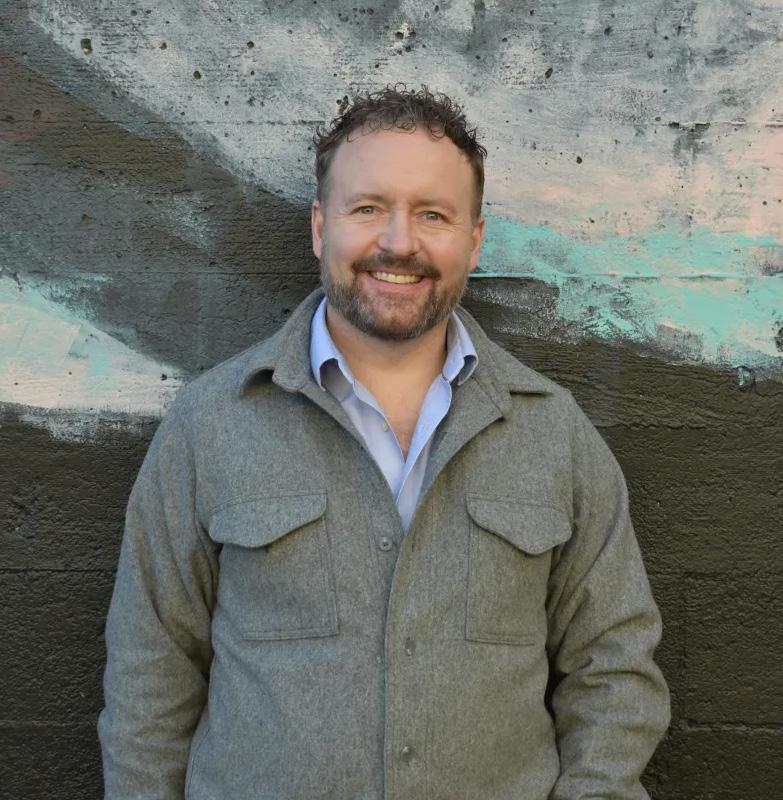
A: I’d put the issues into two groups. The first group of issues are those we have a lot of experience with as a licensee.
Anything related to liquor is of immediate interest. I’m really looking forward to diving deeper into this aspect of the Commission’s work and sharing the experience and knowledge that I have. I know the timeline that all licensees work with and can provide a lot of valuable user feedback because our businesses are constantly navigating the annual renewal process. I think I have a lot to contribute here, and that’s exciting.
The second group of issues is related to the cannabis side of the OLCC’s operations. This is going to be a real learning opportunity for me as I don’t know as much about this industry. But it’s fascinating.
Generally, I’m looking forward to working on the mechanics of governance. By that I mean: You have an issue that needs to be addressed and how you do that at a granular level. For example, we just had the issue of the Bottle Bill and the new rules that the agency needed to issue. The legislature develops and passes the bill, the governor signs it, and then we, as the agency, develop and implement the rules to put that legislation into action. It was fascinating to see that process up close.
Q: Given the many things that the OLCC does, what do you think people don’t know about the OLCC but should?
A: I have a particular perspective on this owing to the first phase of my career in hospitality. The first ten years of my career, I spent in France where I founded a brewery and also opened bars that served our beer. The system is very different. Distribution is controlled by two distributors. One owned by Heineken and one owned by Kronenberg. They lend money to new bars and those bars are then obligated to sell their beer. That system is a real impediment to small businesses like micro-breweries and microdistilleries.
KURT HUFFMAN, PHOTO COURTESY OF CHEFSTABLE
My perspective is also informed by our experience in other states. We have licenses in Washington and California, and the business and licensing environments in those states are much more difficult and expensive. For instance, we paid $235,000 for one of the licenses in California.
So, while it may be hard for Oregonians to appreciate, the process for licensing here is much less difficult than elsewhere. That is something I wish more people appreciated.
I also think it’s important for people to better understand how to approach regulatory agencies like the OLCC. We’ve been working with the OLCC for 17 years and have probably done at least 100 licenses. In my experience, the OLCC and other agencies like county health agencies have been incredibly helpful. The OLCC has tried to find solutions for businesses as opposed to acting like someone with a rule who wants to slap you on the knuckles. And it’s important to approach agencies with understanding that they can be helpful and advocate for you. If you approach them as adversaries, you’re making a huge mistake. You miss out on their willingness to help.
I would say that's the number one thing I've talked to people about: Understand the agency as an advocate for you, and not as an adversary.
Q: The hospitality and restaurant industry had a really rough pandemic period. There’s been some recovery but there are still a lot of challenges. What do you want your fellow commissioners, especially those who don’t have that direct industry experience, to know about your sector in 2025?
A: One of the underappreciated facts that people who are outside hospitality probably don’t know is that there is a lot of lingering PTSD from what businesses had to deal with. It’s industry-wide, but especially with independent operators. I’ve heard from a
lot of people that they’ve survived and come through it, but they want out.
They’re reexamining their businesses. Because this is a remarkable unprofitable industry and it takes a real passion. People got through it. They fought really hard to get back and they’re still at a point where they’re just squeaking by. That’s a real challenge to deal with.
Q: For my last question, I’d like you to look into the future four years from now to the end of your term. What do you want to have accomplished?
A: Over the years, I’ve worked really hard to help the Portland food scene and the neighborhoods where we are. I believe that food and beverage builds neighborhoods and neighborhoods build community. That’s why I’ve always liked this industry. It’s where people come to celebrate. It’s where some of people’s best memories are formed. I know it’s where all my best memories come from. That’s what I really like to do – build community in a place I love living.
So, when it comes to the Commission, I hope that I can contribute the perspective of my industry and my experience and be an advocate for licensees. I want to advocate for smart policy decisions and contribute to the workings of the agency.
Finally, I hope that what I learn about our industry and the agency on a larger scale will help me be a better partner to my partners and a better boss to my employees.
The OLCC oversees access to alcohol and cannabis products in Oregon through education, regulation, and distilled spirits distribution. To learn more, visit oregon.gov/olcc OREGON LIQUOR AND CANNABIS COMMISSION
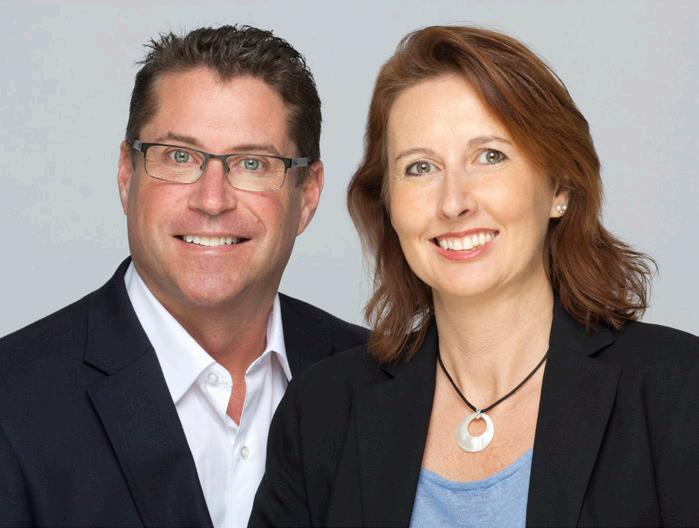

OREGON WINS FROM LOTTERY PLAY
From Parks to Classrooms: How Lottery Dollars Strengthen Oregon Communities
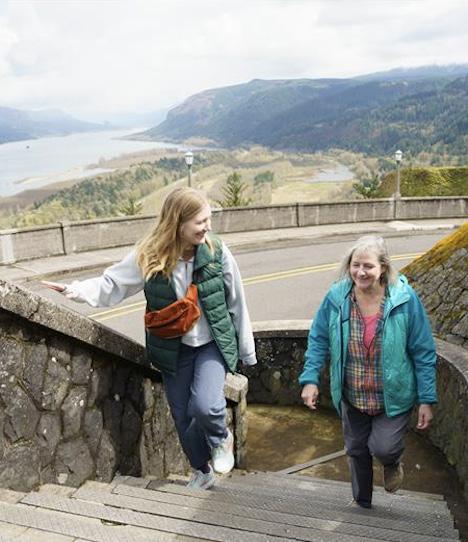


Oregon Lottery retailers are making a difference when it comes to what matters most to Oregonians. From the natural beauty of a state park to public schools in our communities, voters have directed dollars from Lottery play to support specific state-funded programs and projects. Oregon Lottery retailers big and small play a key role in delivering the excitement of playing games so our state can benefit.
Where does the money go?
In 2024, almost $16 billion was paid out in prizes –some are large jackpots and other players took home a few extra dollars. For every dollar played, approximately 91 cents is awarded to winners.
Since the Lottery was created in 1985, more than $16.5 billion in Lottery funds have been directed to state beneficiaries. Over the years, voters and the legislature designated the following to receive Lottery funding:
• Oregon’s public schools
• Economic development (Business Oregon)
• Natural habitats
• Oregon State Parks
• Veteran services
• Outdoor School
The majority of beneficiary funding goes to public schools (53 percent), followed by economic development (25.5 percent) and state parks (7.5 percent) rounding out the top three.
How
is the money used?
Funding from Lottery play has contributed to significant projects and services over the years. There are too many examples to share in one article, but the impact is felt across Oregon communities.
Recently, Lottery-funded State Parks grants helped fund maintenance and upgrades to bring modern accessibility to Vista House in the Columbia River Gorge. Other state parks have used funding to repair picnic shelters, make trails accessible, and tackle other infrastructure needs.
When it comes to public schools, 53 percent of Lottery profits are allocated to school districts to help with needed school projects and infrastructure, as well as higher education academic scholarships and intercollegiate athletics. The funding allows for students to have access to more textbooks, computers, scholarships, and other supports.
With 266,000 veterans living in Oregon, 1.5 percent of all Oregon Lottery funds annually help veterans with essential services such as health care, job placement, education and home loans. They also help address the difficult but important topics of homelessness and mental health among our veteran population.
“Our beneficiaries rely on Lottery dollars to deliver state programs that benefit all Oregonians,” said Oregon Lottery’s Senior Marketing Program Manager Thais Rodick. “We have one of the best state parks systems in the country thanks to Lottery support. With our recent funding of veteran services, the Oregon Department of Veterans Affairs was able to nearly double its program offerings to those who served. We’re making a lasting impact on the lives of Oregonians.” OREGON LOTTERY
EVERGREEN MEMBERS
Celebrating ORLA’s Loyal Members
For decades, ORLA’s magazine has served as a cornerstone of communication for Oregon’s hospitality industry. More than just a publication, it has been a platform for elevating member voices—spotlighting innovation in technology, advocating for inclusive tourism, and addressing urgent challenges like workforce development.
70 + YEARS
• Majestic Inn & Suites
• Sunset Oceanfront Lodging
• Windermere on the Beach
60 + YEARS
• Best Western New Oregon
• The Ocean Lodge
50 + YEARS
• Amalfi's Italian Restaurant
• Bargreen Ellingson
• Benson Hotel
• Best Western Plus Hood River Inn
• Black Butte Ranch
• Coho Oceanfront Lodge
• Cousins Country Inn
• D. Michael Mills, Lawyer PC
• Fireside Motel
• Giovanni's Ristorante
• Goose Hollow Inn
• Hallmark Resort Newport
• Lakeshore Inn
• Maverick Motel
• NW Natural
• Pelican Shores Inn
• Pig 'N Pancake, Inc.
• Ringside Steakhouse
• Sayler's Old Country Kitchen
• Shadow Hills Country Club
• The Waves Oceanfront Motel
• West Beach Suites
40 + YEARS
• A & W Restaurant, Stayton
• Baker Commodities
• Banning's Restaurant
• Barley Brown's Brew Pub
• Best Western Inn at Face Rock Hotel & Suites
Through the years, we’ve featured hundreds of members from every corner of the state, highlighting the creativity, resilience, and diversity that define Oregon hospitality. But the magazine’s true strength lies in its power to connect. By sharing insights, best practices, and success stories, it has become a trusted resource—and a catalyst for collaboration— among industry professionals.
• Best Western Skyline Motor Lodge
• Cannon Beach Ecola Creek Lodge
• Columbia Gorge Hotel
• Cross Financial
• Crowne Plaza Portland Downtown
• Currents
• Dairy Queen of the Pacific Northwest
• Dairy Queen, Albany
• Dairy Queen, Coburg Road
• Diamond Lake Resort
• DoubleTree By Hilton - Portland
• Dreamer's Lodge
• Elks Lodge, Cottage Grove
• Elmer's-Breakfast-Lunch-Dinner, Clackamas
• Hayward Inn
• Highlander Motel & RV Park
• Holiday Inn Portland - Columbia Riverfront
• Larry's Garden Golf Restaurant
• Maverick Hotel
• Ponderosa Motel
• Portland Marriott Downtown Waterfront
• Quality Inn & Suites
• Redmond Inn
• Reedville Cafe
• Rendezvous Bar & Grill
• Riverhouse Lodge in Bend
• Schooner's Cove Inn
• Sea Sprite Guest Lodgings
• Stratford Inn
• Sumpter Junction
• Sunriver Resort
• Super 8 by Wyndham
• Surfsand Resort
• The Benson, Curio Collection by Hilton
• The Mark Spencer Hotel
• The Wilderness Inn
• Timberline Lodge
• Tollgate Inn Restaurant
• United Salad Co.
• US Foods
• Ye Olde Pancake House
In this issue, we pay special tribute to the members who’ve stood by ORLA for 20 years or more. Your long-standing partnership fuels our progress and enriches our shared story. We are deeply grateful for your dedication—and proud to celebrate your continued impact on our industry.
30 + YEARS
• 13 Virtues Brewing
• Adobe Resort and Restaurant
• Americas Best Value Inn, Eugene
• Americas Best Value Sandman Inn
• Appletree Restaurant
• Ashley's, Bend
• Astoria/Warrenton/Seaside KOA
• Bella Union
• Best Western John Day Inn
• Best Western Plus Columbia River Inn
• Best Western Plus Hood River Inn
• Best Western Plus Mill Creek Inn
• Best Western Plus Rama Inn & Suites
• Big Pines RV Park
• Black Butte Ranch
• Boardman Marina & RV Park
• Boomer's BBQ
• Bullwinkle's Family Food 'N Fun
• Burger Bob's Drive-In
• Burgerville (multiple locations)
• Cafe Today at the Liberty Center
• Cannon Beach Conference Center
• Cannon Beach RV Resort
• Capers Cafe and Catering Co
• Carl's Jr. Restaurants, Klamath Falls
• Channel House Inn
• Concept Entertainment Group
• Courtesy Inn
• Courtyard By Marriott Portland Airport
• Curtis Foodservice Equipment
• Dairy Queen, Baker City
• Dairy Queen, Hood River
• Dairy Queen, Rhododendron
• David's Brawny Burger
• Denny's Restaurant #6697, La Grande
• Denny's Restaurant, Pendleton
• Deschutes Brewery & Public House
• Dublin House Motel
• Eagle Cap Chalets
• Elephants Delicatessen
• Embassy Suites By Hilton Portland
Washington Square
• Flying Pie Pizzeria
• Frazier's
• Garth T. Rouse & Associates
• GeffenMesher
• Georgie's Beachside Grill
• Giuseppe's, Portland
• Godfather's Pizza
• Godfather's Pizza, Beaverton
• Godfather's Pizza, Hillsboro
• Godfather's Pizza, Portland
• Golden Valley Brewery & Pub
• Government Relations Dept/Darden Restaurants, Inc.
• Graduate by Hilton Eugene
• Grand Central Pizza
• Gubanc's Pub
• Helvetia Tavern
• Holiday Inn Ontario
• Hood River Hotel
• Imperial River Company
• Jasper's Deli, Cottage Grove
• Jasper's Deli, Eugene
• Jasper's Food Managment
• Jasper's, Eugene
• Jasper's, Springfield
• JC's Pizzaria
• JD's Sports Pub and Restaurant
• Kozy Korner
• Lord Bennett's
• Magoo's
• Manley's Tavern
• Marco's Cafe & Espresso Bar
• McMenamins Tavern
• McMenamins, 205 Place
• McMenamins, Bagdad Theater & Pub
• McMenamins, Barley Mill Pub
• McMenamins, Blue Moon Tavern & Grill
• McMenamins, Broadway
• McMenamins, Cornelius Pass Roadhouse
• McMenamins, Corvallis
• McMenamins, Edgefield Brewery
• McMenamins, Fulton Pub & Brewery
• McMenamins, Greenway Pub
• McMenamins, High Street Brewery
• McMenamins, Highland Pub & Brewery
• McMenamins, Hillsdale Brewery & Public House
• McMenamins, Lighthouse Brew Pub
• McMenamins, Market Street
• McMenamins, Murray Avenue
• McMenamins, Raleigh Hills Pub
• McMenamins, Riverwood Pub
• McMenamins, St. John Pub
• McMenamins, The Ram's Head
• McMenamins, Thompson Brewery & Public House
• McMenamins, West Linn
• McMenamins Edgefield
• McMenamins Oak Hills Brewery & Pub
• McMenamins, East 19th Street Cafe
• McMenamins, Inc.
• McMenamins, Mission Theatre & Pub
• Mist
• Mo's Restaurant
• Mo's, Florence
• Mo's, Lincoln City
• Mo's, Tolovana Park
• Mt. Hood Meadows LLC
• Mt. View RV
• Multnomah Falls Lodge
• Newport Pacific Corporation/Mo's
• Newport Steak & Seafood
• Nite Hawk Cafe & Lounge
• Ocean Front Motel
• OK Corral, Grants Pass
• Omar's Steak & Seafood
• Oregon Fine Foods
• Original Pancake House, Salem NE
• Original Pancake House, Salem SE
• Oswego Lake Country Club
• Otto's Sausage Kitchen
• Papa Murphy's Pizza, La Grande
• Performance Reps Northwest
• Pig 'N Pancake, Astoria
• Pine Valley Lodge
• Pinocchio's Pizza
• Plainview Motel & RV Park
• Portland General Electric Co.
• Prime Time Sports Bar & Grill
• Purple Parrot, Roseburg
• Quest Investment Management Inc.
• Republic National Distributing Co. (RNDC)
• Ringo's Tavern - Keizer
• River House Inn Baymont by Wyndham
• Roger's Restaurant
• Rose's Equipment & Supply
• Salem Campground & RV's
• Sandcastle Beachfront Motel
• Sentinel
• Stephanie Inn
• Subway Sandwiches, Corvallis
• Subway Sandwiches, Corvallis NW
• Subway Sandwiches, Dallas
• Super 8
• Sybil's Omelettes Unlimited
• Taco Time, Beaverton
• The Happy Fortune Restaurant
• Valley Cafeteria
• Wayfarer Restaurant
• Wild River Brewing & Pizza Co, Cave Junction
• Wild River Brewing & Pizza Co, Grants Pass
• Wild River Brewing & Pizza Co.
• Wild River Pizza Co.
• Willamette Valley Vineyards
• Windy River Restaurant & Lounge Inc.
• Wooden Nickel Pub and Eatery
• Wooden Nickel Tavern
• Yellow Flamingo #2
20 + YEARS
• A & W, Hermiston
• ABC Enterprises, Inc.
• Albany Visitors Association
• Anthony's
• Arctic Circle, Newport
• Ashland Chamber of Commerce
• Ashland Springs Hotel
• Ashley's, Bend
• Astoria Rivershore Motel
• Auntie Anne's
• Baja Fresh Mexican Grill
• Bandon Dunes Golf Resort
• Benchwarmers Bar & Grill
• Bendistillery
• Bentley's
• Best Little Roadhouse
• Best Western Hermiston Inn
• Big Jim's Drive In, The Dalles
• Big O Bagels
• Bill's Tavern & Brewhouse
• Black Bear Diner of Madras, LLC
• Boone's Junction
• Buoy 9 Restaurant & Lounge
• Burrito Amigos
• Cafe Yumm!-Oakway Center
• Camp 18 Restaurant
• Casa El Mirador
• Charlie's Produce
• Clackamas Co. Tourism & Cultural Affairs
• Clamity Jae's
• Comfort Suites - Springfield
• Courtyard by Marriott - Medford Airport
• Courtyard by Marriott Eugene-Springfield
• Cousins
• Dairy Queen, Cedar Mill
• Dairy Queen, John Day
• Dairy Queen, Junction City
• Dairy Queen, Scappoose
• Dairy Queen, The Dalles
• DeAngelo's Catering and Events
• Denny's Diner
• Deschutes Brewery
• Desdemona Club
• Diamond Room
• Dooger's Seafood & Grill
• Dossier
• Driftwood Restaurant & Lounge
• Ecola Seafood Restaurant
• El Gaucho
• Elizabeth Oceanfront Suites
• Embassy Suites Portland Downtown
• Emerald Fruit and Produce Co. Inc.
• Emerald Lanes
• Evergreen Restaurant Group
• Executive Inn
• Explore Lincoln City
• Explore Tualatin Valley
• Fairfield Inn and Suites By Marriott
• Five Spice
• Flying Pie Pizzeria
• Fultano's Pizza Astoria
• G-Man Sports Bar
• Geiser Grand Hotel
• Good Times Cafe & Bar
• Great American Pizza Co.
• Highland Pub & Sports Bar
• Hilton Garden Inn
• Hole In the Wall BBQ
• Holiday Inn Express & Suites
• Holiday Inn Express Grants Pass
• Hotel Elliott
• Inn at Cannon Beach
• Inn at Seaside
• Inn at the Convention Center
• J's Restaurant & Lounge
• JD Fulwiler & Co Insurance
• Joe's Cellar
• Kyllo's Seafood & Grill
• Langdon Farms Golf Club
• Lighthouse Inn
• Lodge at Summer Lake
• Looking Glass Inn
• Mac's Restaurant & Nightclub
• McCallum's Custom Catering
• McDonald's, Salem HQ
• McMenamins, Boone's Treasury
• McMenamins, Crystal Ballroom & Brewery
• McMenamins, Edgefield Winery
• McMenamins, Grand Lodge
• McMenamins, Greater Trumps
• McMenamins, Hotel Oregon
• McMenamins, Kennedy School
• McMenamins, North Bank
• McMenamins, Roseburg
• McMenamins, Sherwood
• McMenamins Grand Lodge
• McMenamins Hotel Oregon
• McMenamins Kennedy School
• McMenamins Old St. Francis School
• McMenamins White Eagle
• Mexicali Express
• Mingo
• Mo Betta Deli
• Mo's At Cannon Beach
• Mother's Bistro & Bar
• Mountains Edge Sports Bar & Grille
• Mt. Hood Vacation Rentals
• Mulligan's Pub
• Newport Chowder Bowl
• Norma's Seafood & Steak
• Northland Furniture
• Northwest Restaurants, Inc.
• Noti Pub
• NW Portland International Hostel & Guesthouse
• Oak Tree Northwest Bar & Grill
• Old Market Pub & Brewery
• Old Parkdale Inn
• Ontario Inn
• Original Joe's
• Outback Steakhouse, Keizer #3810
• Outback Steakhouse, Medford #3812
• Outback Steakhouse, Portland #3811
• Outback Steakhouse, Springfield #3817
• Outback Steakhouse, Tualatin #3814
• Overleaf Lodge & Spa
• Papa Murphy's
• Pastini Bridgeport Village
• Pastini NE
• Pelican Pub & Brewery
• Pietro's, Milwaukie
• Pirate's Cove Restaurant
• Professional Benefit Services
• Red Robin, Medford
• Red Robin, Redmond
• Reeder Beach RV Park & Country Store
• Residence Inn by Marriott Eugene Springfield
• Richard's Deli And Pub
• Risk Strategies' Fournier Group
• River Rock Cafe
• Rooster's
• Royal Sonesta Portland Downtown
• Sassy Onion Inc.
• Scotty's
• Seal Rocks RV Cove
• Seven Feathers Casino Resort
• Signs Now
• Silverado
• Singing Springs Resort
• Spirit Mountain Casino & Hotel
• Stepping Stone Cafe LLC
• Studio 6 Suites, Portland Downtown
• Subway Sandwiches, Portland SW
• Subway Sandwiches/PS Inc.
• Sushi Okalani
• Sweet Waters Family Restaurant & Oasis
• Sweet Waters Restaurant & Lounge
• Sybaris
• Table Rock Motel & Vacation Rentals
• Taco Del Mar, SE MLK
• The Inn at Old Town
• The Lodge at Riverside
• The Paramount Hotel
• Tik Tok Restaurant & Bar
• Timbers Bar & Grill East
• Timbers Bar & Grill North
• Tommy's 4th Street Bar & Grill
• Traxler Group
• Tryon Creek Grill & Sports Bar
• Tu Tu' Tun Lodge
• Victorian Cafe
• Village Bar & Grill
• Visit Central Oregon
• Wall Street Pizza, Sandy
• Westcliff Lodge
• Wetlands Brew Pub & Sports Bar
• Whispering Woods Resort
• Wichita Pub, Clackamas
• Wild Goose Cafe
• Wild Hare Saloon & Cafe
• WildFlower Grill
• Wilson Ranches Retreat
• Youngberg Hill
• Yukon Jacks Steakhouse & Saloon

NEW MEMBERS
ORLA Would Like To Welcome The Following New Members From February – June, 2025
• Birch Creek Advisors, Walla Walla, WA
• Bullard Tavern, Portland
• Burch Energy Services Inc., Portland
• Cambria Hotel - Portland Pearl District, Portland
• Cascade Employer's Association, Salem
• CO Lodging, Bend
• Coast Hospitality, Sisters
• CodyMD, Portland
• Digiwest Managed Services, LLC, Portland
• Easy Ice, Scottsdale, AZ
• Flying Pig, Vancouver, WA
• G3 Restaurant, Inc., Aumsville
• IMB, Corvallis
• Kiwanda Coastal Properties, Pacific City
• MidCity SmashedBurger, Portland
• National Extinguisher Services, Springfield
• Nick Alexander Films, Medford
• Nous, Ashland
• The Original Hotcake House, Portland
• Pacific Concepts Group (DIRECTV), Long Beach, CA
LODGING PERFORMANCE
Hotel Occupancy
• Pumpkin Ridge Golf Club, North Plains
• Restaurant365, Irvine, CA
• S&J Food Distributors - Nicky USA, Auburn, WA
• Sea Breeze Court, Cannon Beach
• Sweet Wife Baking, Baker City
• Travel Baker County, Baker City
• Victoricos Restaurants Inc, Beaverton
• WhirLocal Media Group, Salem
• The Wooden Chicken Pub, Portland
• Woodlark Hotel, Portland
This chart represents occupancy from hotels in the state of Oregon, year-over-year through April 2025. Source: STR via an agreement with Travel Oregon.
Hotel Occupancy (Year-Over-Year) Percentage Change: April 2025
Oregon
Eastern Oregon
Central Oregon
Southern Oregon
Oregon Coast
Mount Hood / Gorge
Willamette Valley
Portland Region
Pacific US (AK, CA, HI, OR, WA)
US Total
RESTAURANT INDUSTRY SNAPSHOT
Restaurant Job Market Across Oregon
The following chart illustrates restaurant occupations with the largest number of opportunities in the state of Oregon. Source: Data and insights for RestaurantsWork™ are provided by Lightcast, a leading labor market analytics firm, under contract with the National Restaurant Association and its Educational Foundation.
Jobs with the Largest Number of Opportunities in Oregon

Want to see more?
Want to see more? ORLA members can access insights like this and more in the Member Info Hub at OregonRLA.org.
NEWS BRIEFS
Happenings From Around the Industry
Current OTLA Participants at Crater Lake

OTLA Builds Stronger Leaders for Oregon’s Tourism Future
The Oregon Tourism Leadership Academy (OTLA), now entering its sixth year, is helping shape the next generation of hospitality and tourism leaders across the state. Designed for rising professionals in both public and private sectors, the program provides hands-on learning aligned with Oregon’s strategic tourism goals. For ORLA members, OTLA represents a valuable opportunity to invest in leadership development that strengthens individual careers and the overall industry. Learn how your team can benefit or get involved at OregonRLA.org/OTLA.
Strengthening Hospitality Through Second Chances
Stone Soup PDX is transforming lives and supporting Oregon’s hospitality industry by training individuals facing employment barriers for successful foodservice careers. With over 200 graduates and a new café training site in Portland, the nonprofit equips participants with culinary, frontof-house, and job readiness skills. ORLA members can benefit from hiring job-ready graduates who bring motivation, reliability, and real-world experience to the table. Visit www.stonesouppdx.org for more info.

Connect, Lead & Thrive!
Join us for ORLA’s second annual Women in Tourism & Hospitality Symposium, a day designed to inspire and connect women across Oregon’s restaurant, lodging, and tourism sectors. This event celebrates the voices and journeys of women in our industry while creating space to strengthen your leadership path, build your network, and explore how personal branding and mentorship can fuel your growth. Hear real stories from Oregon’s women leaders about their challenges, triumphs, and the advice they wish they had known. Whether you’re looking to advance your career, expand your connections, or simply recharge alongside inspiring women, this symposium is your space to be seen, supported, and encouraged. Let’s celebrate, connect, and help advance women in Oregon’s hospitality industry—together. Learn more and register at ORLAHospitalityConference.com/WITHSymposium.
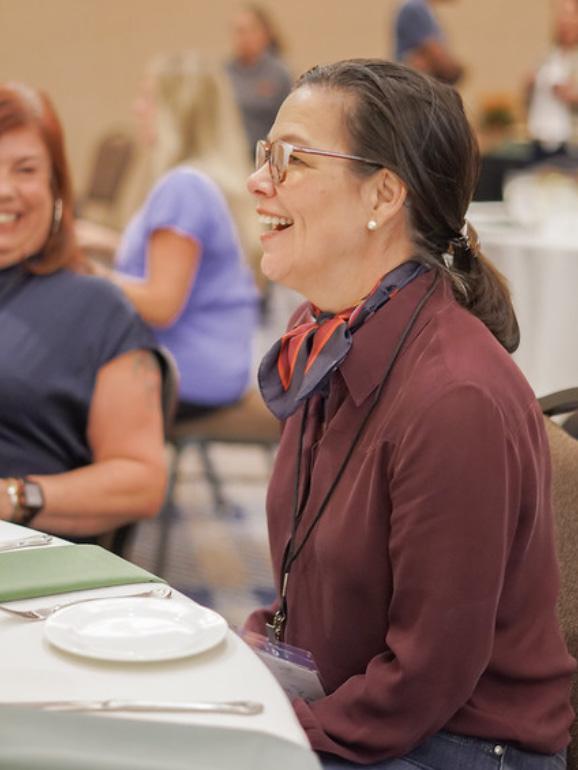
New Tool Maps Restaurant Career Paths
The NRAEF has launched RestaurantsWork™, an interactive site offering data-driven insights on industry trends, career paths, and growth opportunities. This comprehensive resource shows how entry-level jobs can lead to long-term advancement in the evolving foodservice landscape. Visit https://chooserestaurants.org/restaurantswork for details.
HOW CAN WE SERVE YOU?
Membership in ORLA means being a part of the only organization in the state devoted to protecting and promoting the interests of the entire hospitality industry. Contact us for questions; let us know what issues are affecting your business and how we can help. We have your back!
MEMBERSHIP CONTACTS:



STEVEN SCARDINA
Senior Regional Representative 503.718.1495
SScardina@OregonRLA.org
DARIAN HARPOLD
Regional Representative 971.224.1503
DHarpold@OregonRLA.org
MARLA McCOLLY
Director of Business Development
503.428.8694
MMcColly@OregonRLA.org
GOVERNMENT AFFAIRS CONTACTS:

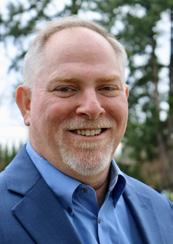


MEMBER SOLUTIONS
Save Time and Money with ORLA’s Cost-Saving Member Programs | OregonRLA.org

PREFERRED PARTNERS

HOSPITALITY BUSINESS INSURANCE: HIP
ORLA Members receive a free audit of insurance and risk management programs and can save an average of 10-15%.
ORLA FINANCE CENTER
ORLA Members access huge savings with various tax credit programs and small business lending.
JASON BRANDT
President & CEO 503.302.5060 JBrandt@OregonRLA.org
GREG ASTLEY
Director of Government Affairs 503.851.1330 Astley@OregonRLA.org
MAKENZIE MARINEAU
GA and Regional Leadership Teams Coordinator 541.404.0033
MMarineau@OregonRLA.org
AIDAN EARLS
Executive Coordinator Government Affairs 971.224.1508 AidanE@OregonRLA.org
OREGON RESTAURANT & LODGING ASSOCIATION MAIN OFFICE: 503.682.4422 • info@OregonRLA.org

HOSPITALITY PARTNERS
CREDIT CARD PROCESSING
ORLA Members get a discounted flat swiped rate of 2.3% + .05 a transaction, plus additional fees waived and tools to run your business more efficiently.
WORKERS’ COMP INSURANCE
ORLA’s group program with SAIF affords members an additional discount if they meet the eligibility requirements.
ASCAP - ORLA Members can save up to 20% off their first-year music license fees.
BMI - ORLA Members can save up to 20% off their music licensing fees.
Garth T. Rouse & Associates - Comprehensive health insurance services for ORLA Members.
Nubi - ORLA Members can save 10% on custom website creation and hosting.
Oregonian Media Group - Deep savings on high impact marketing strategies for ORLA Members.
Pacific Concepts Group (DIRECTV) - ORLA Members can save 20% or more off retail DIRECTV.
PenridgeGlobal - Progressive discounts on select custom window treatments for ORLA Members.
RestaurantOwner.com - ORLA Members receive 15% off all monthly plans and 30% off all annual plans.
RX Music - ORLA Members save up to 50% off curated music or music video programs.
WhirLocal Media Group - ORLA Members get 25% off the AI Hospitality Employee (save $600/year).
ONLINE BUYER'S GUIDE
ORLA works with close to 200 Allied Members who have joined your association in support of Oregon’s restaurant and lodging operators. To search for Allied Members' products and services visit the online Buyer's Guide at OregonRLA.org.











































































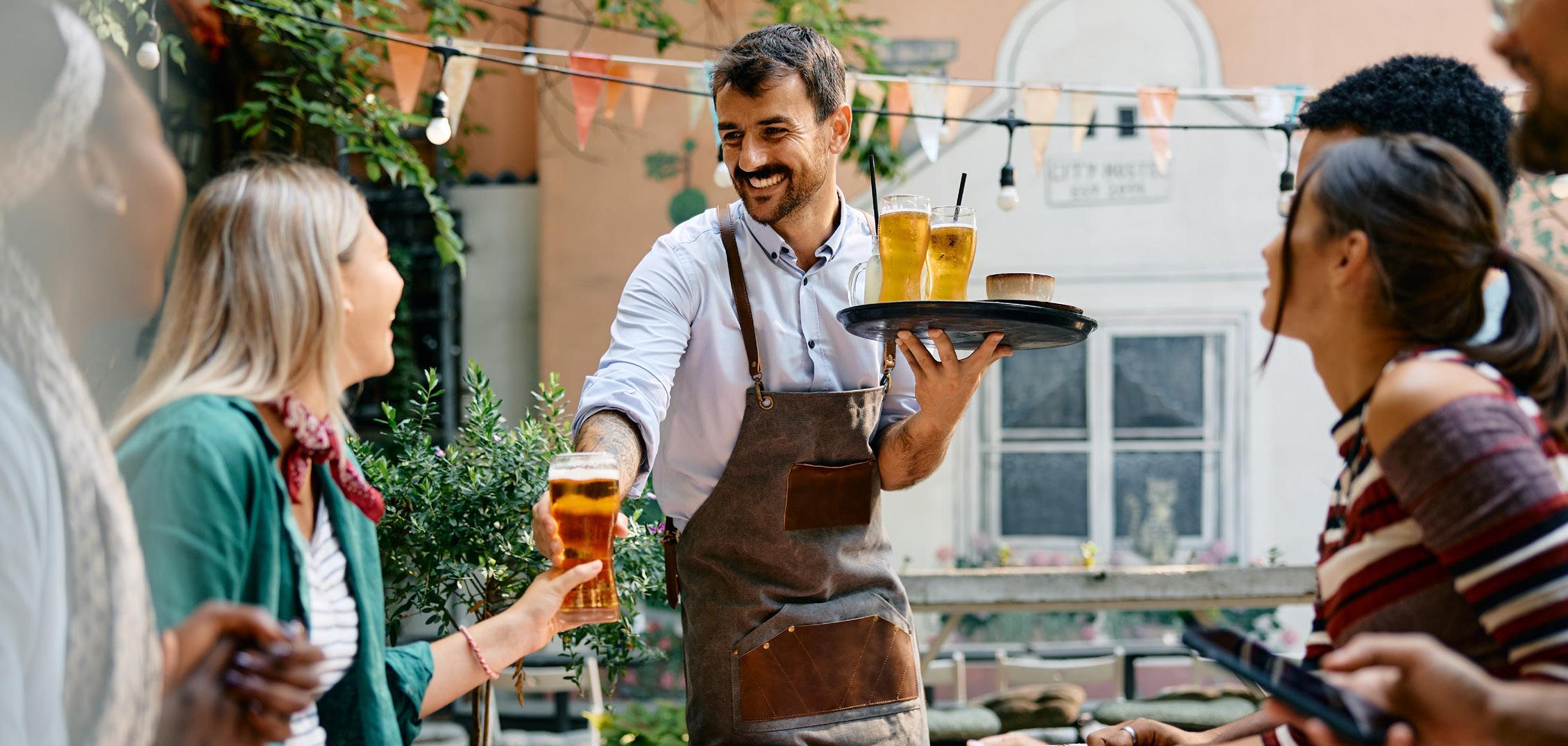












ORLA Hospitality Conference
AAHOA NW Region Charity Golf Tourney
Women in Hospitality & Touism


